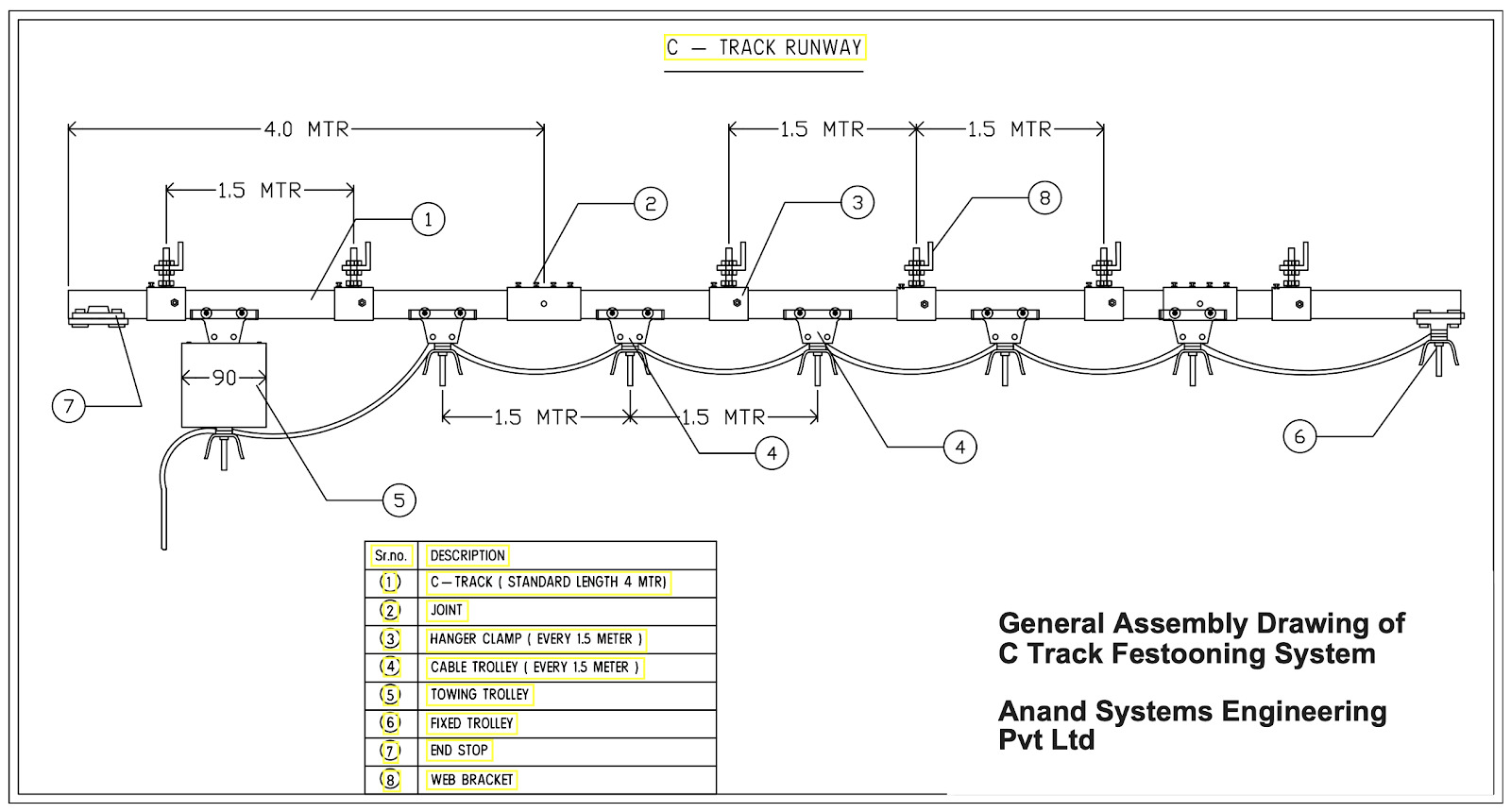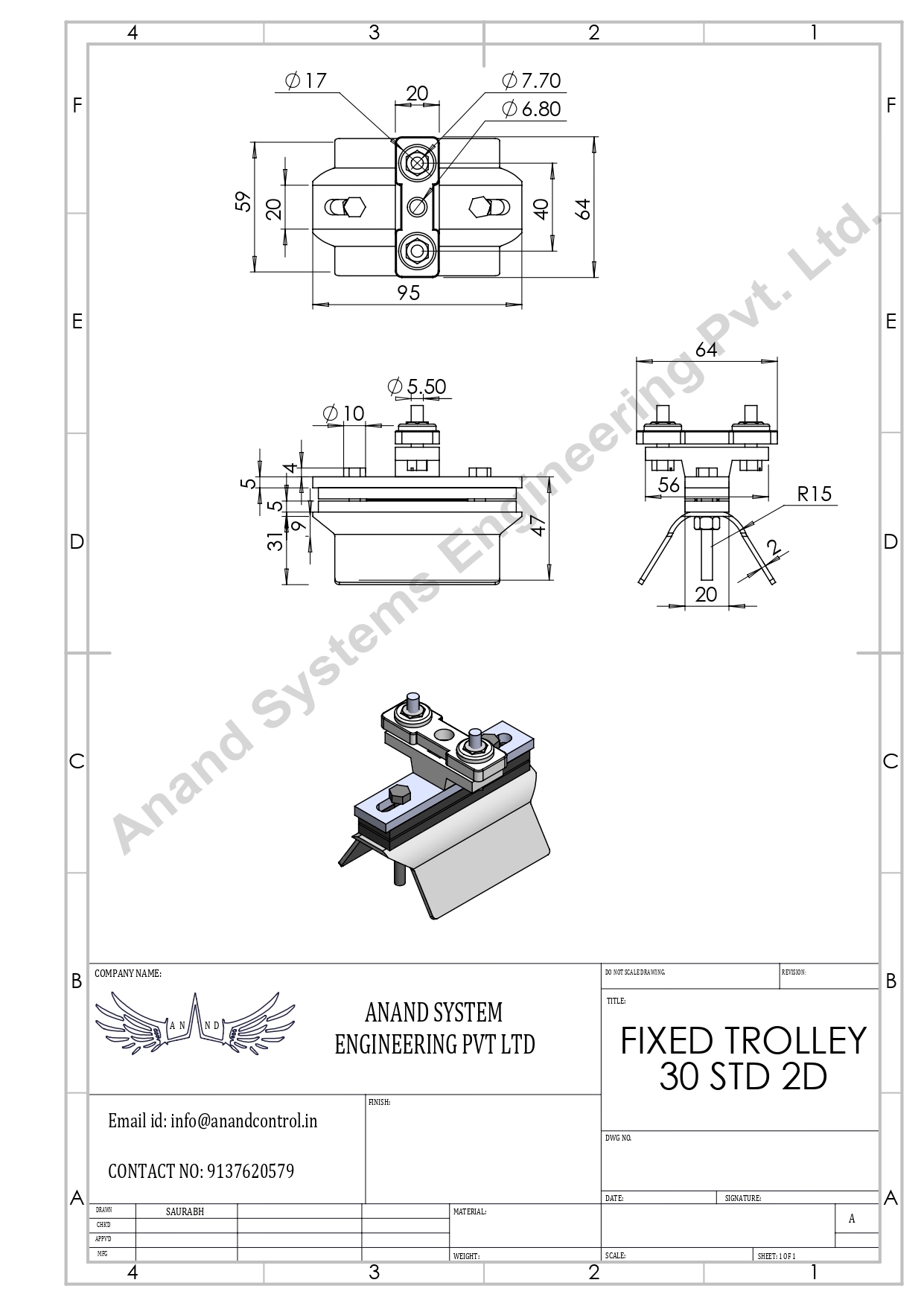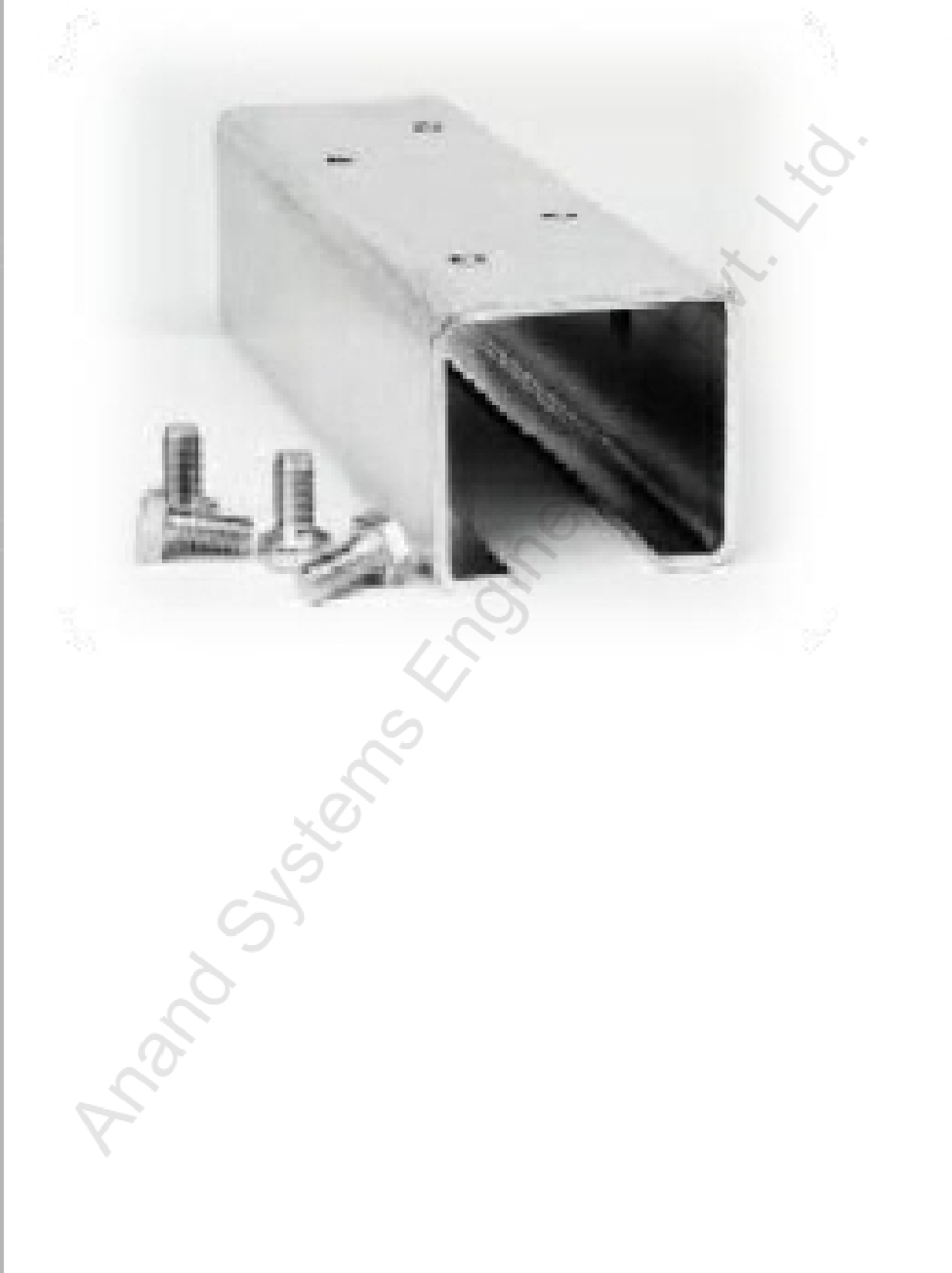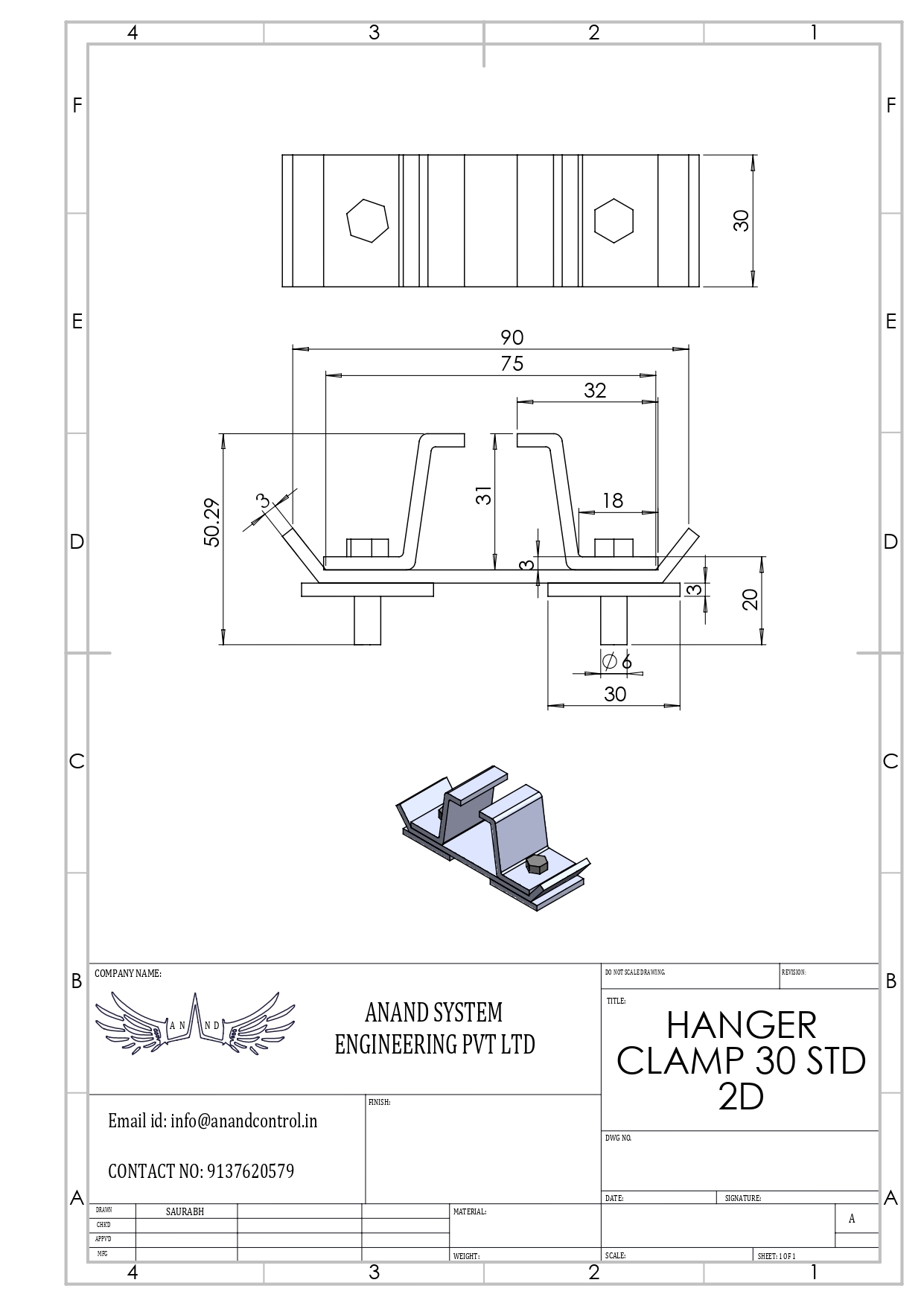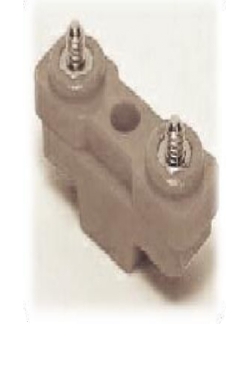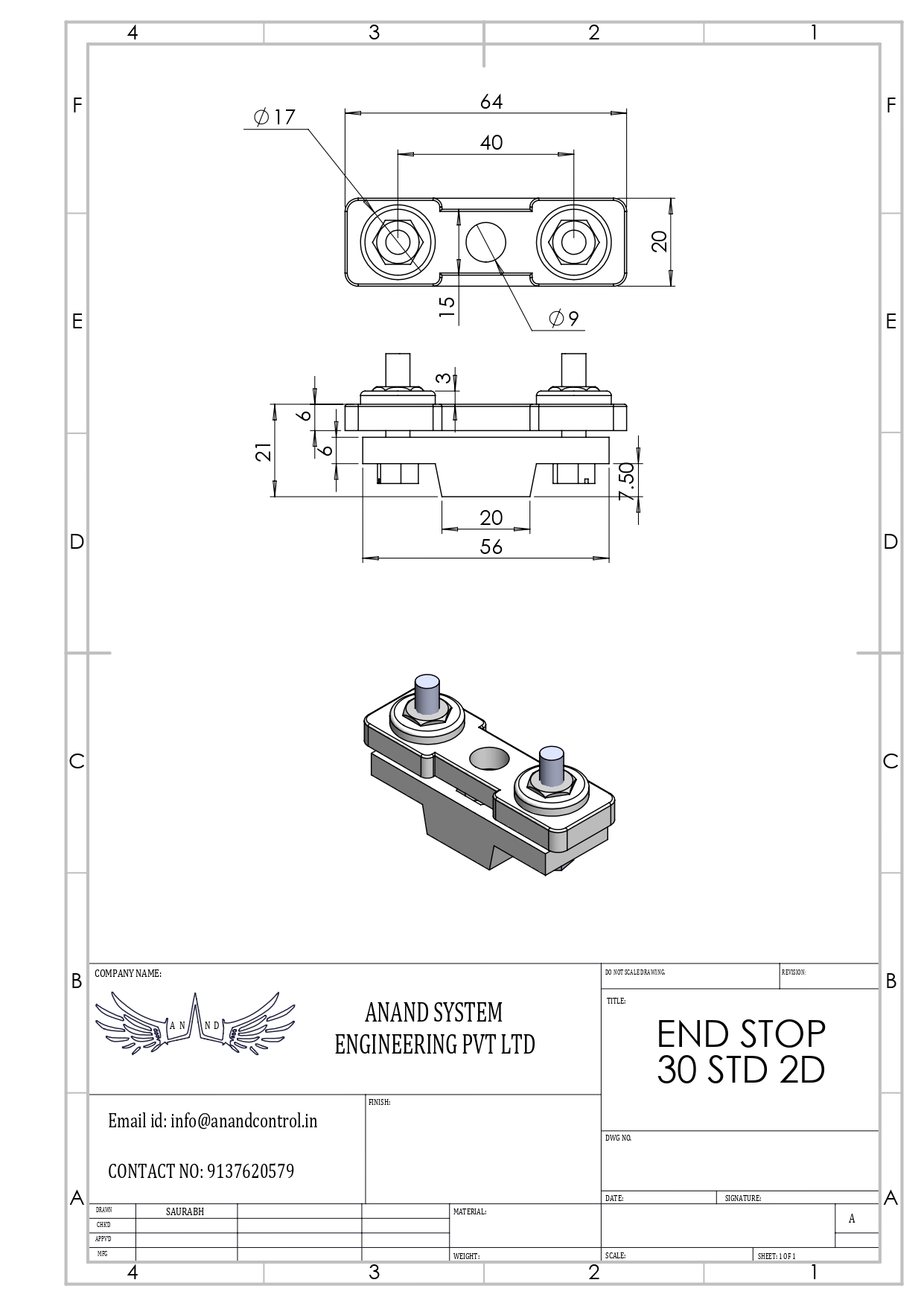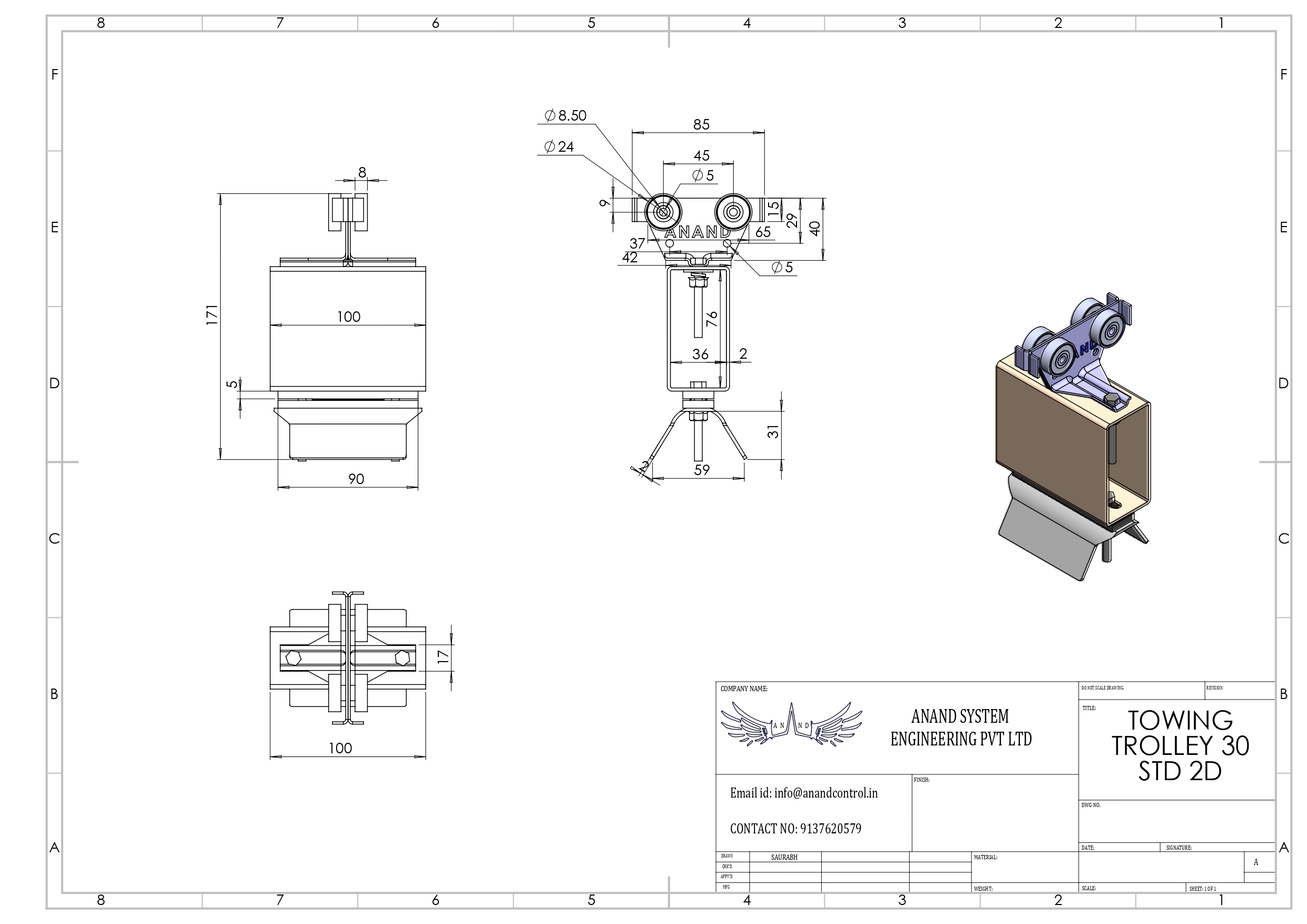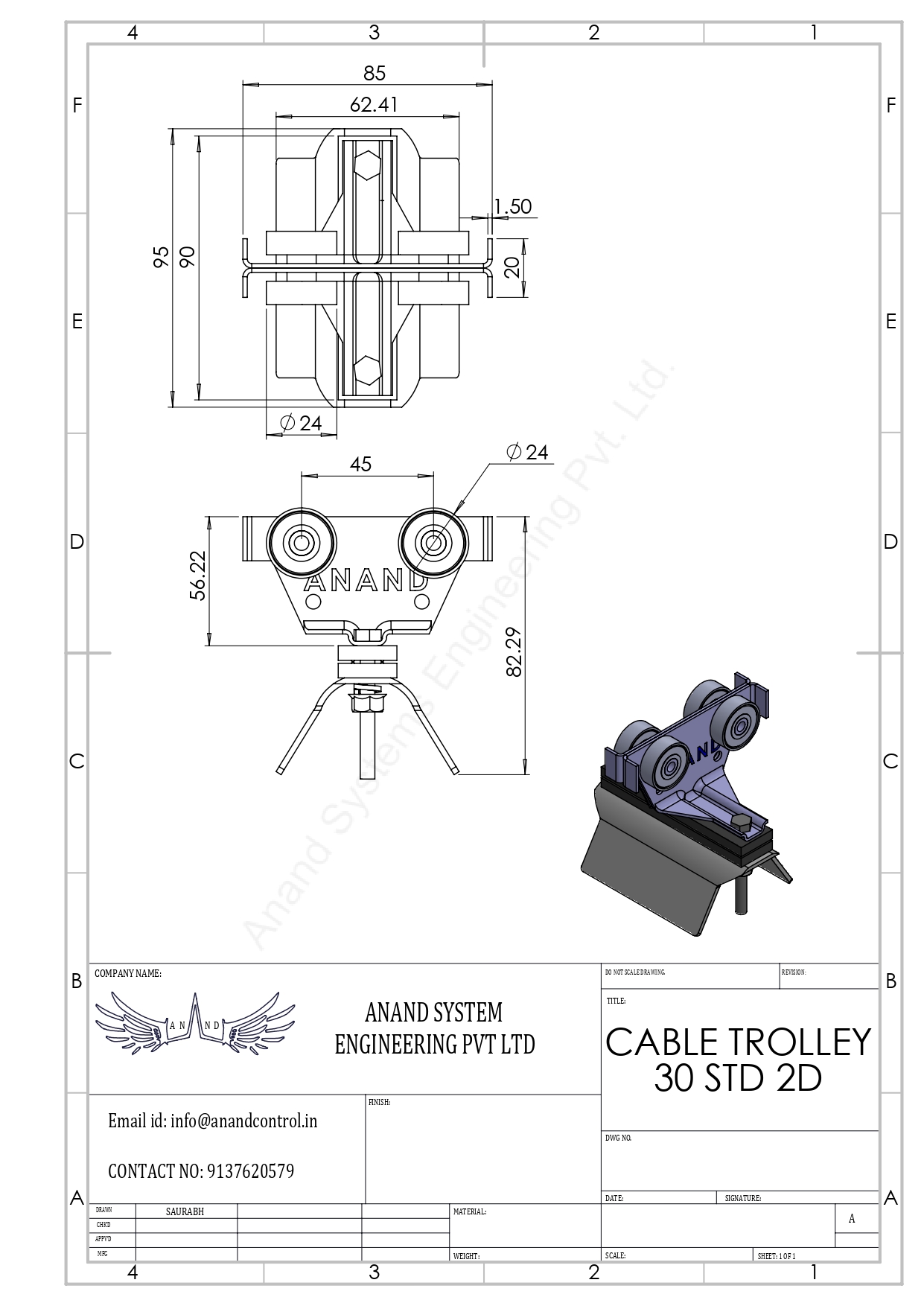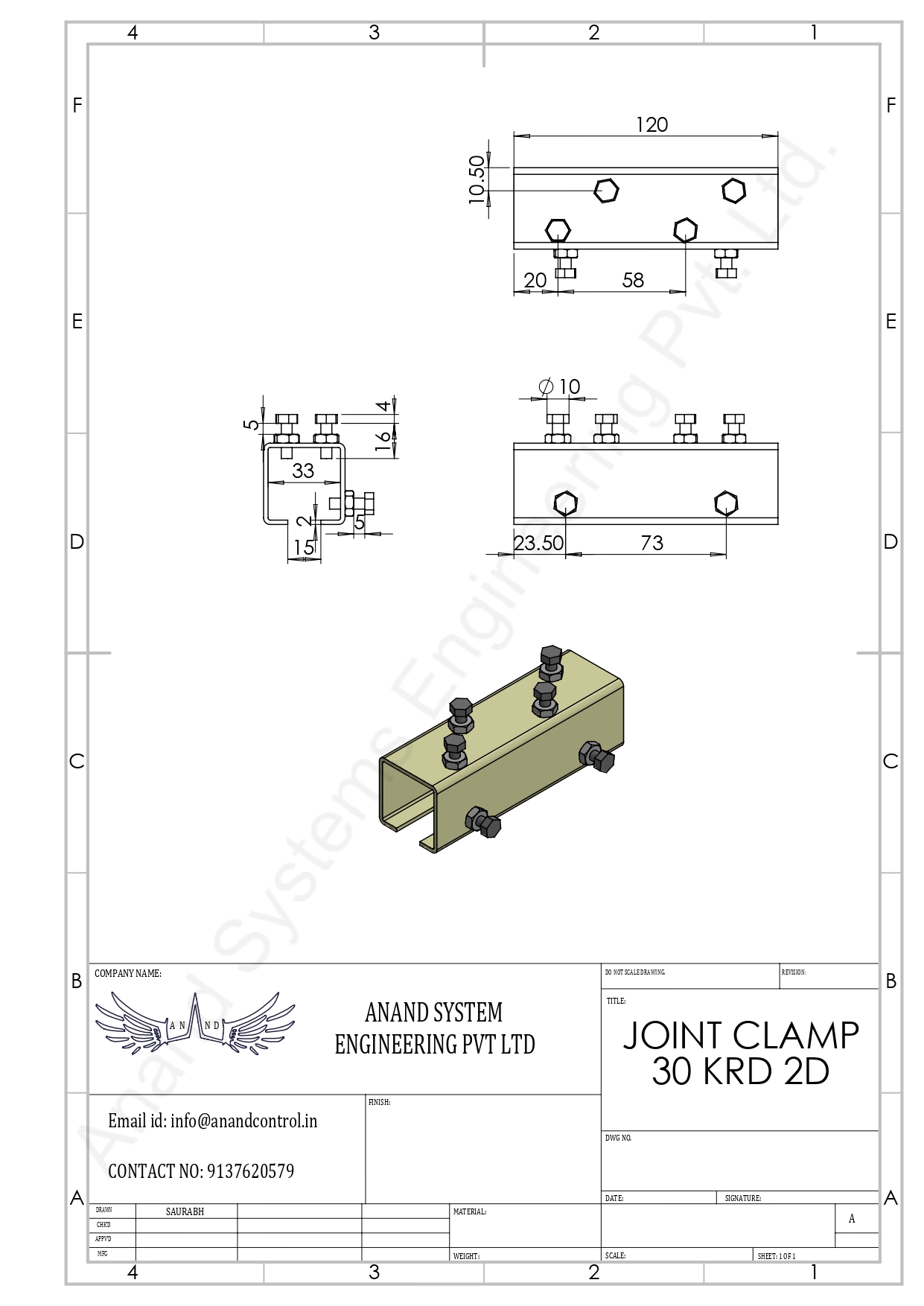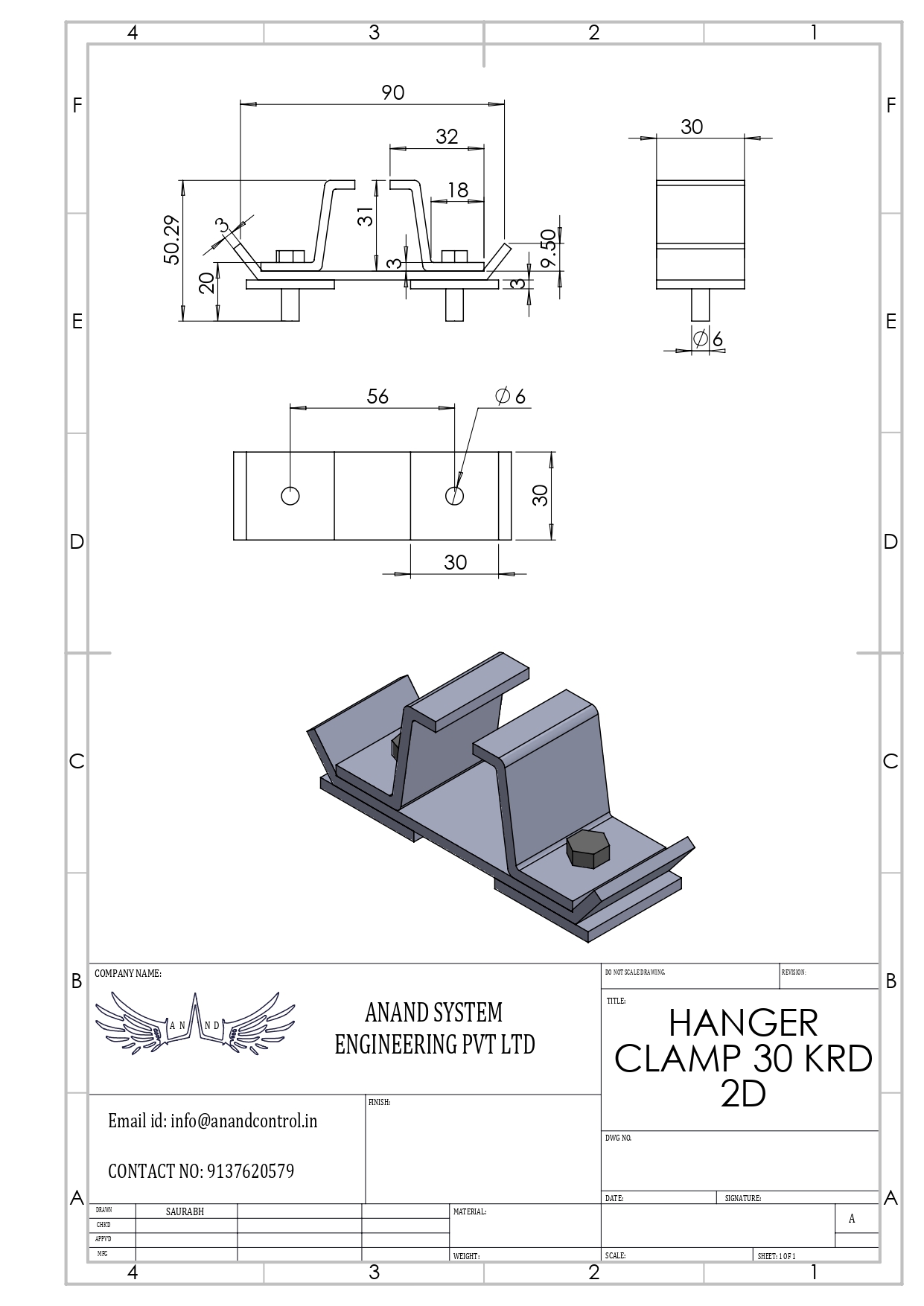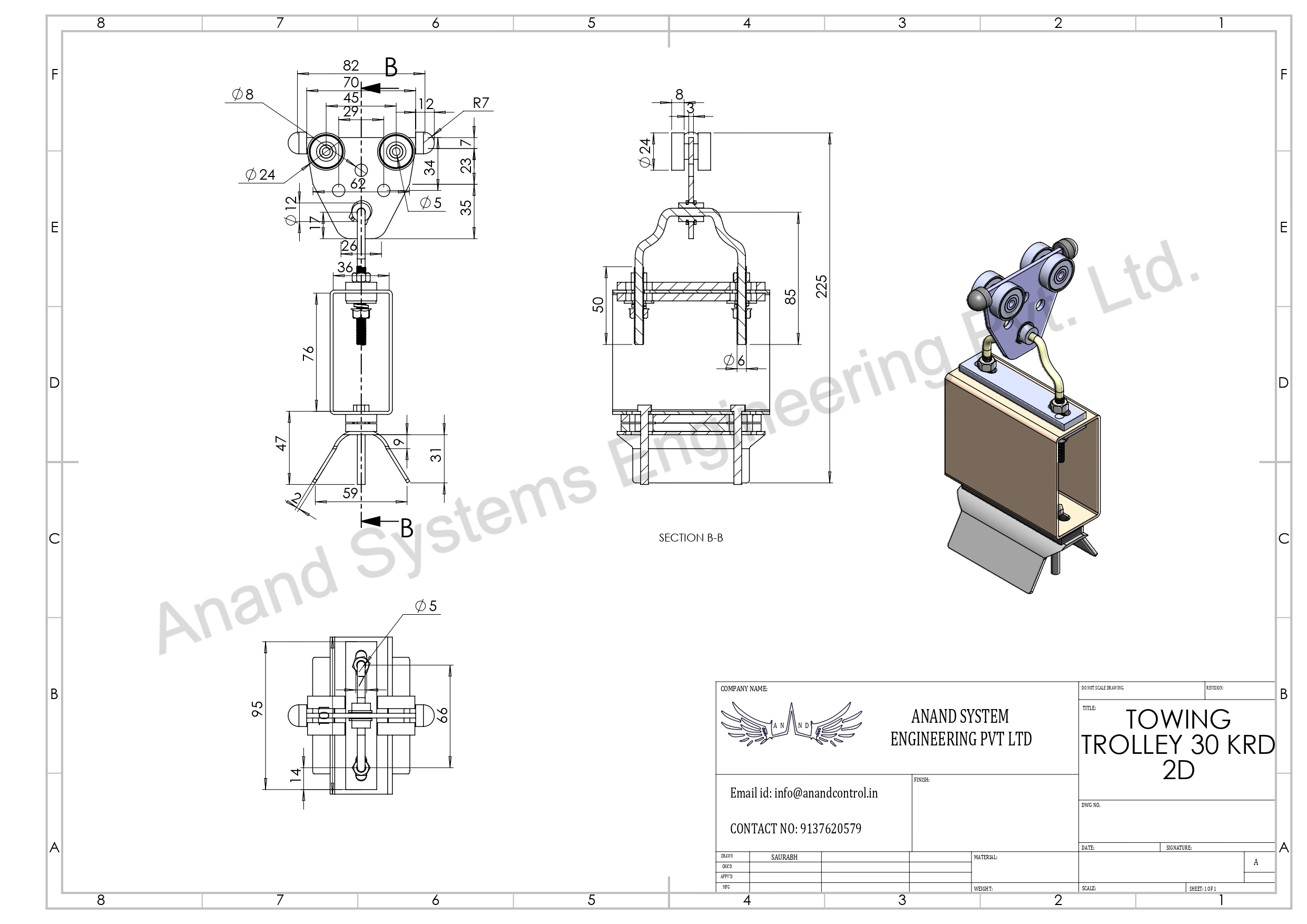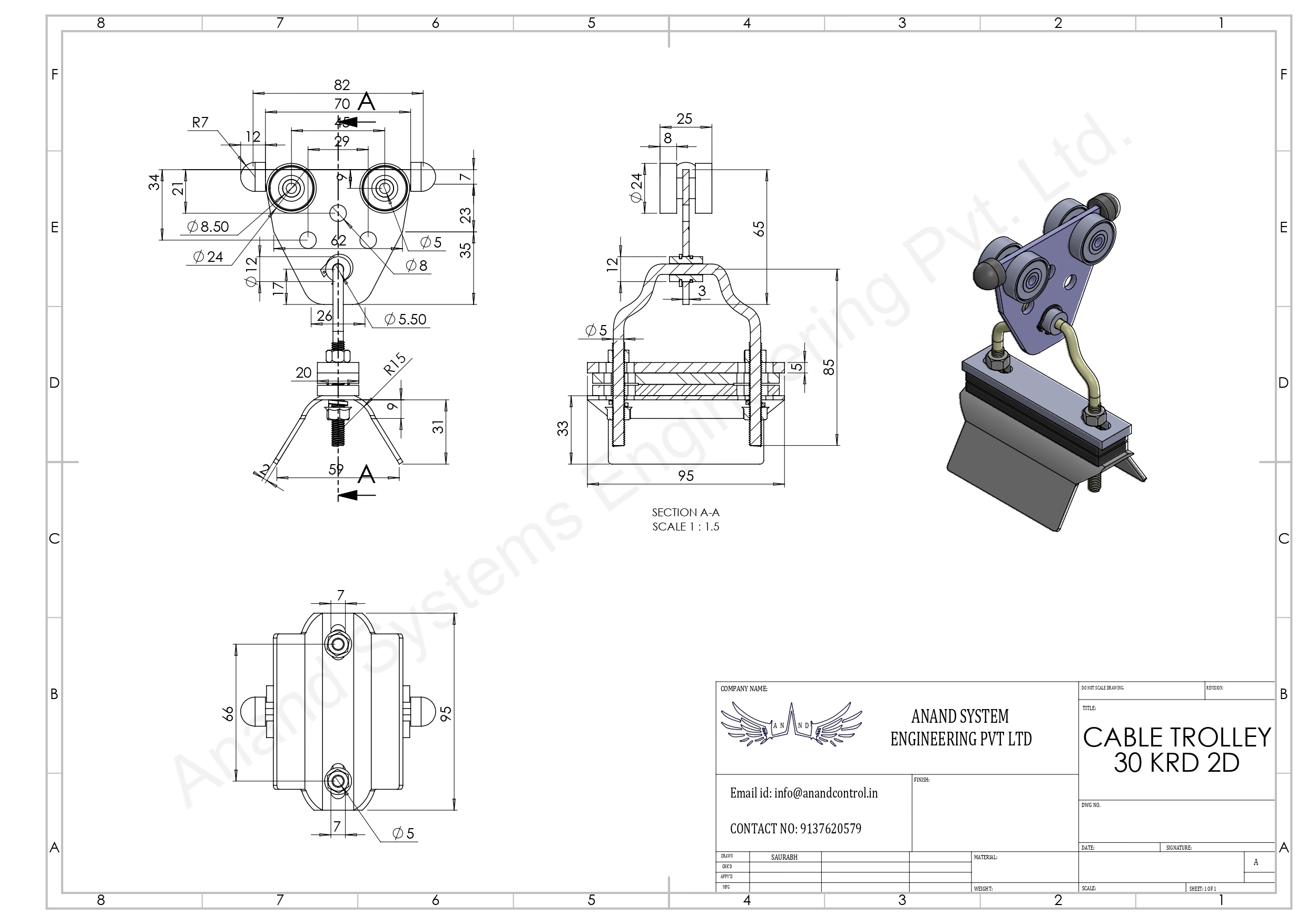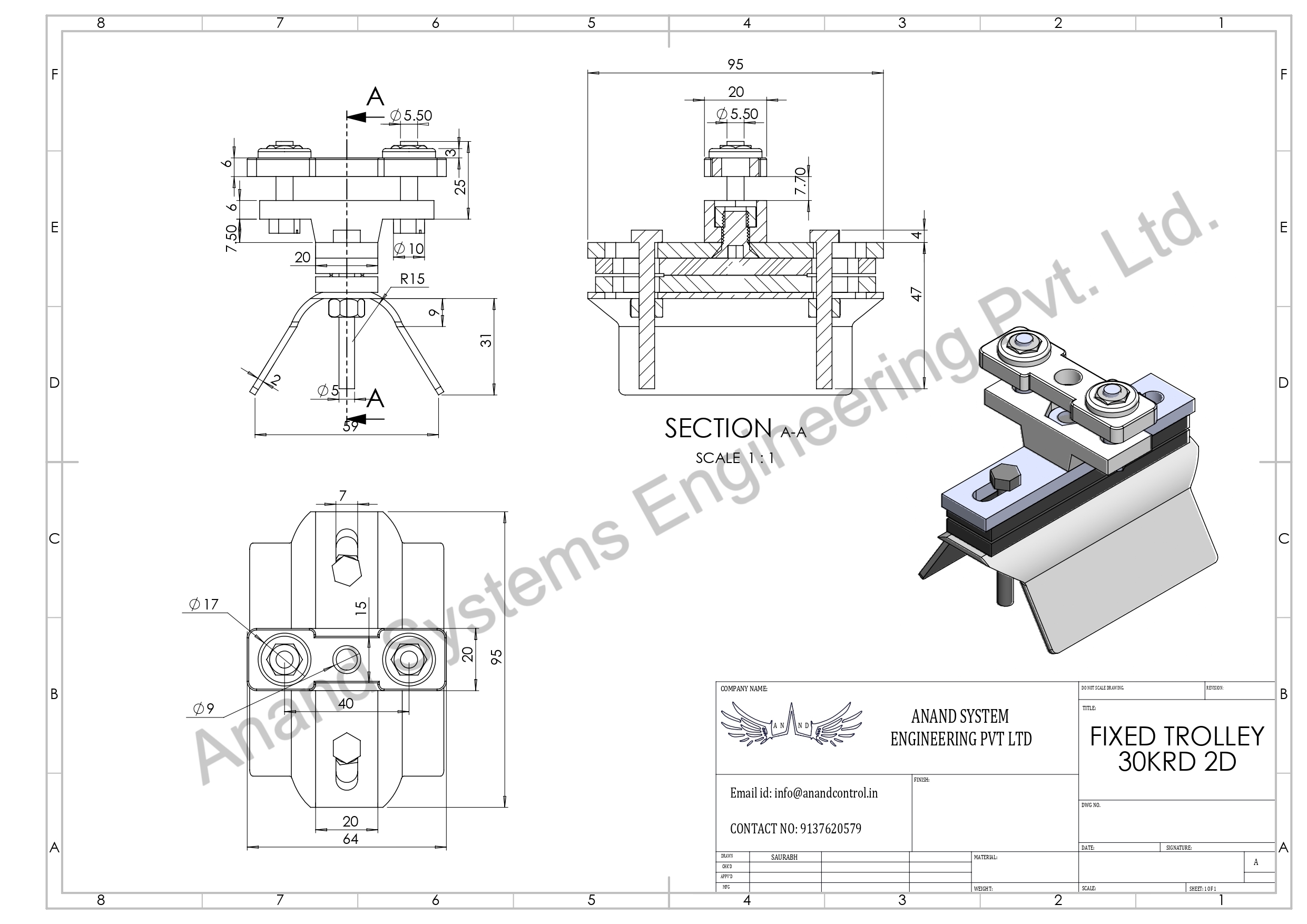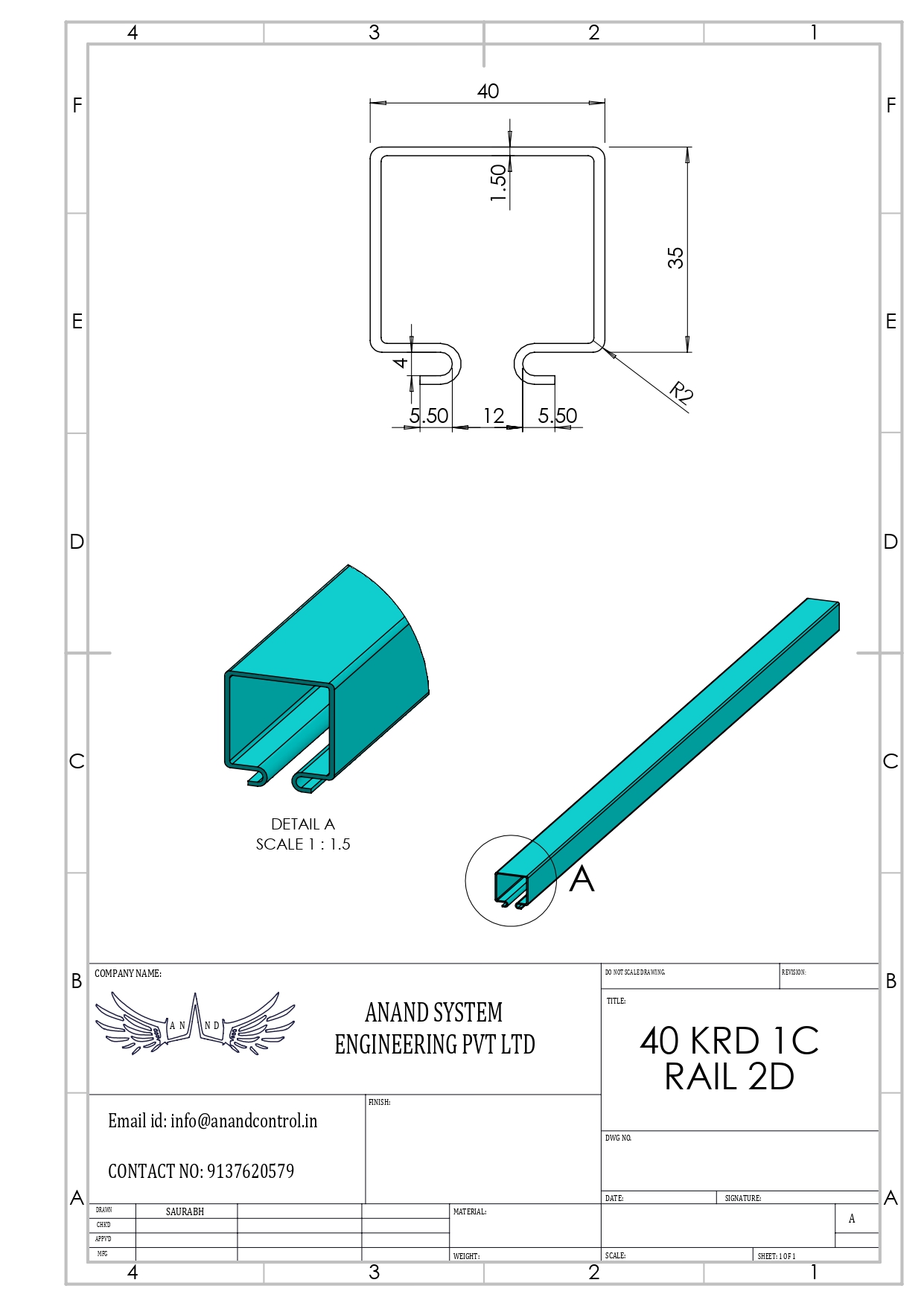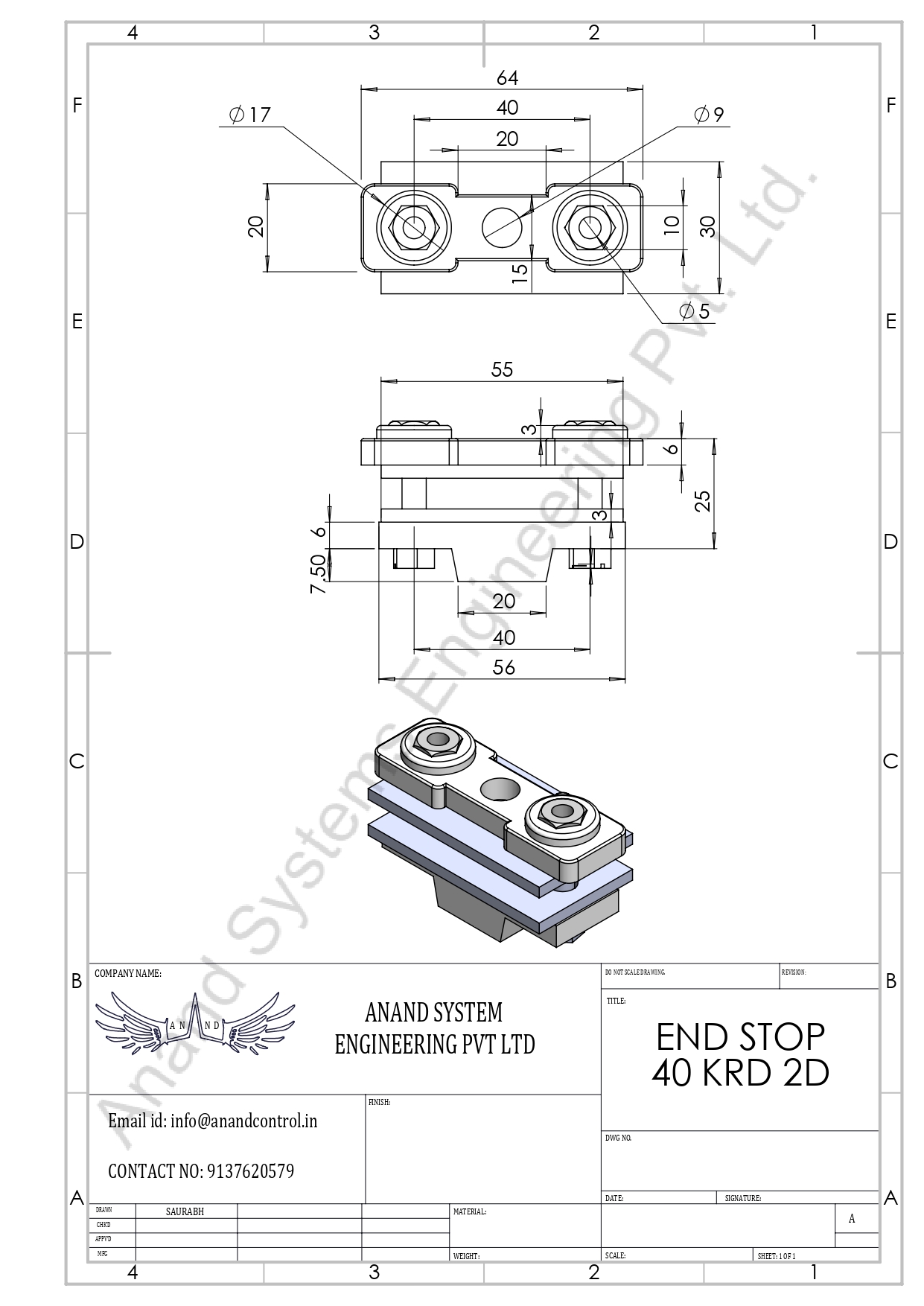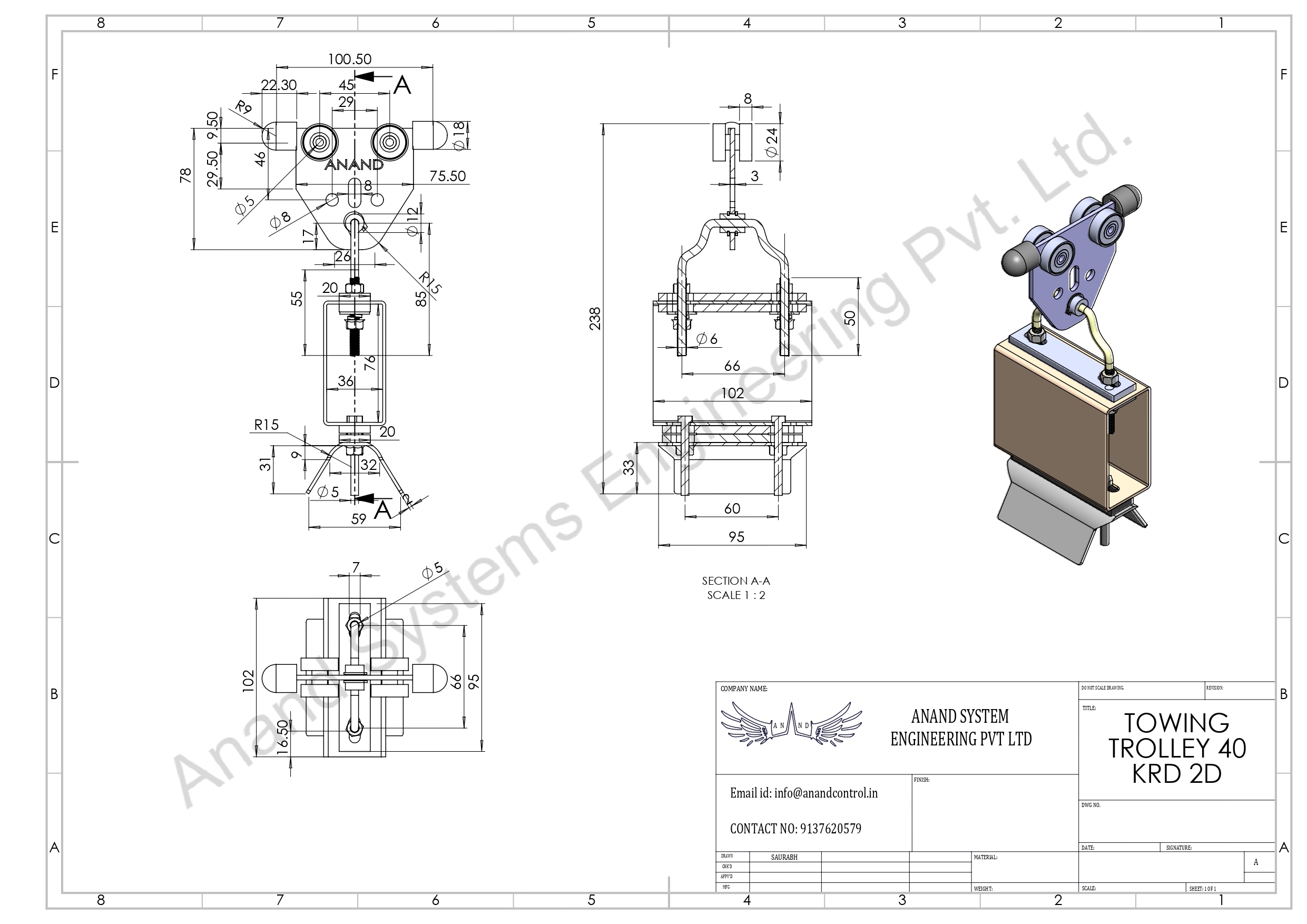C Track & C Rail Festooning System Supplier & Manufacturer for EOT Cranes
C - Track Rail Festoon system is a festooning system for smooth management of high current carrying cables used in EOT overhead cranes, hoists, and any other industrial mobile equipment. This type of festoon system comes in various types and sizes.
Cable Festooning System for Crane
Anand C Rail Hangar Clamp
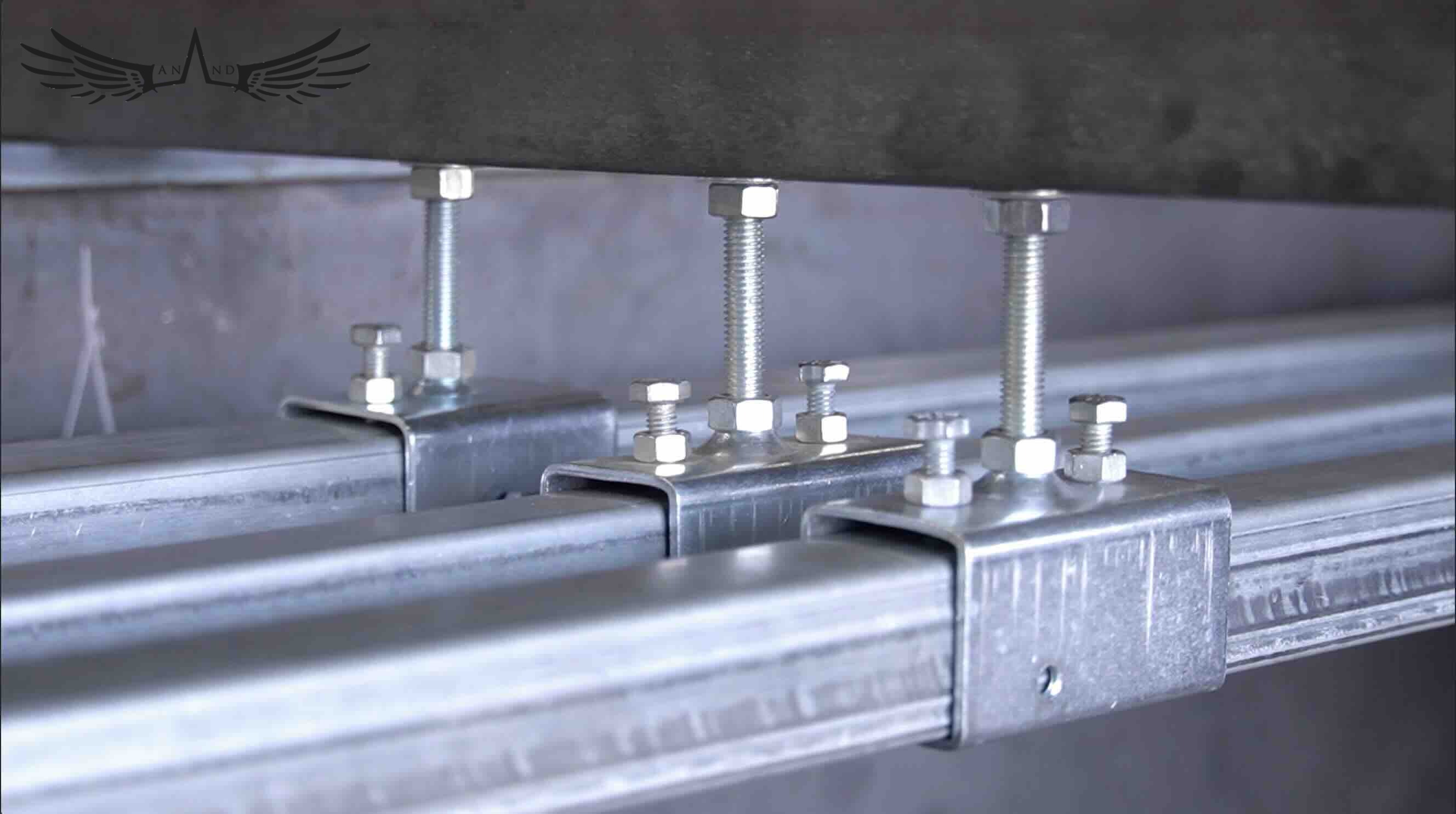
Anand C Rail End Stop
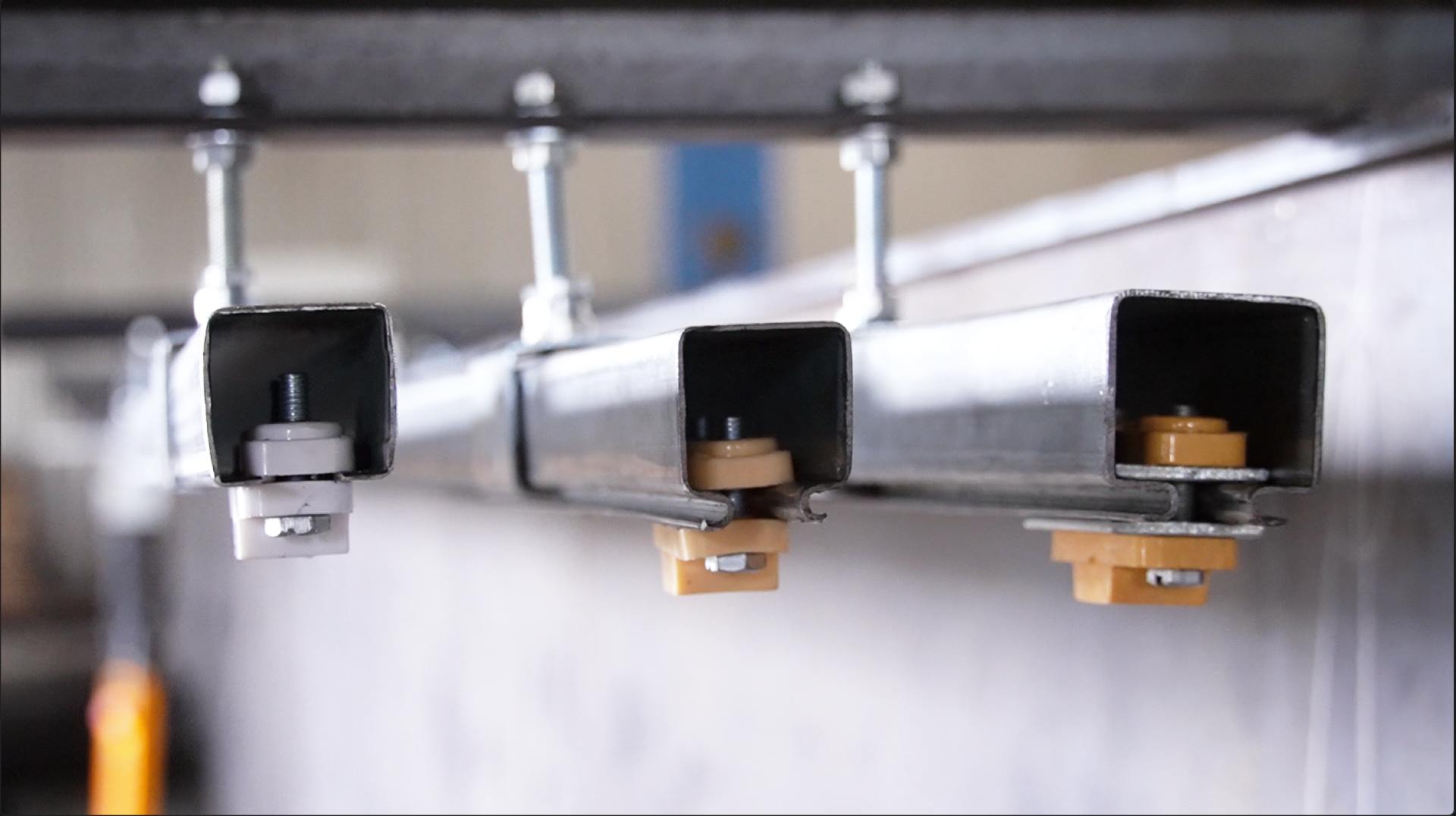
Anand C Ttrack Joint
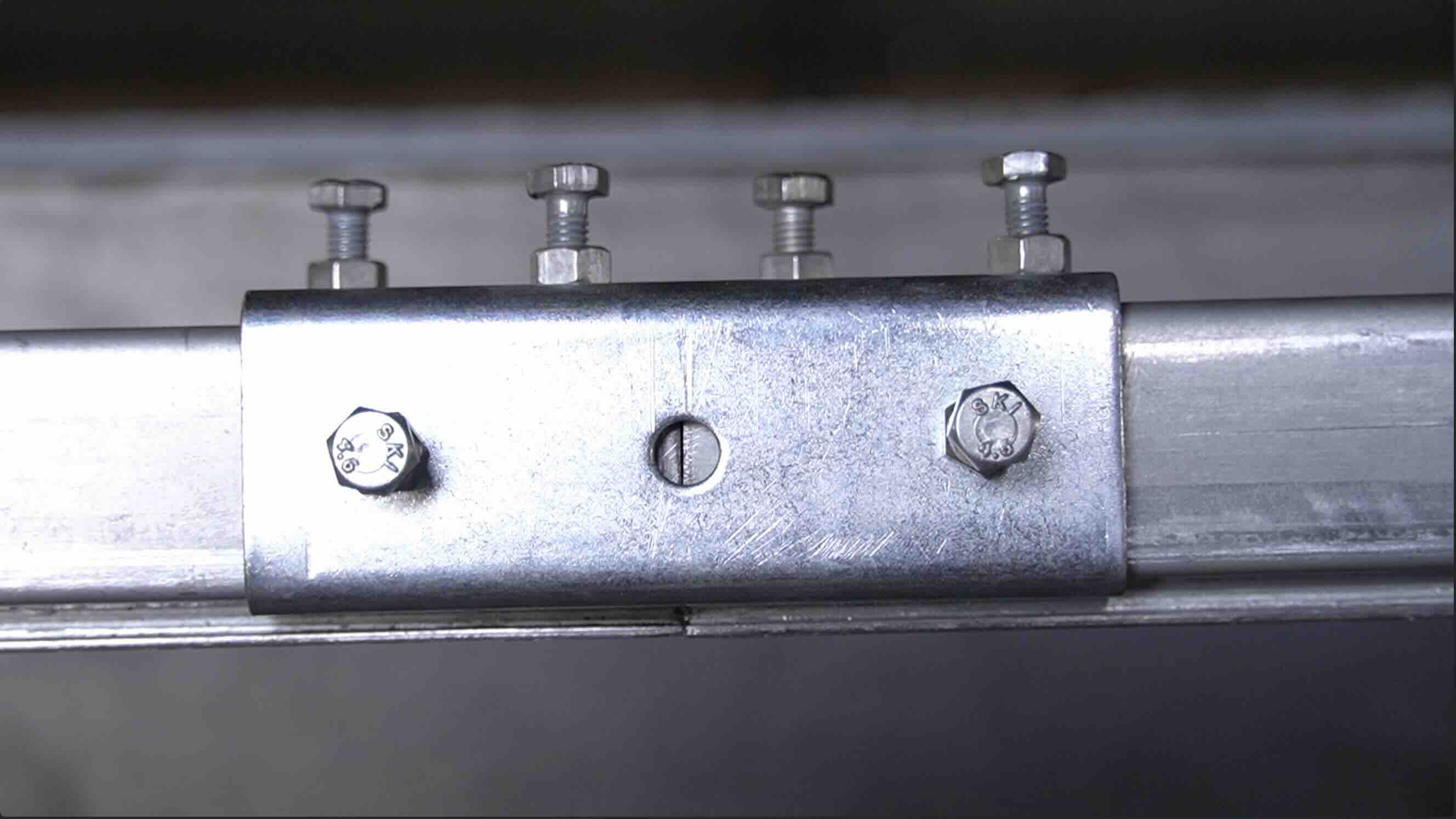
Anand C Rail Festooning System
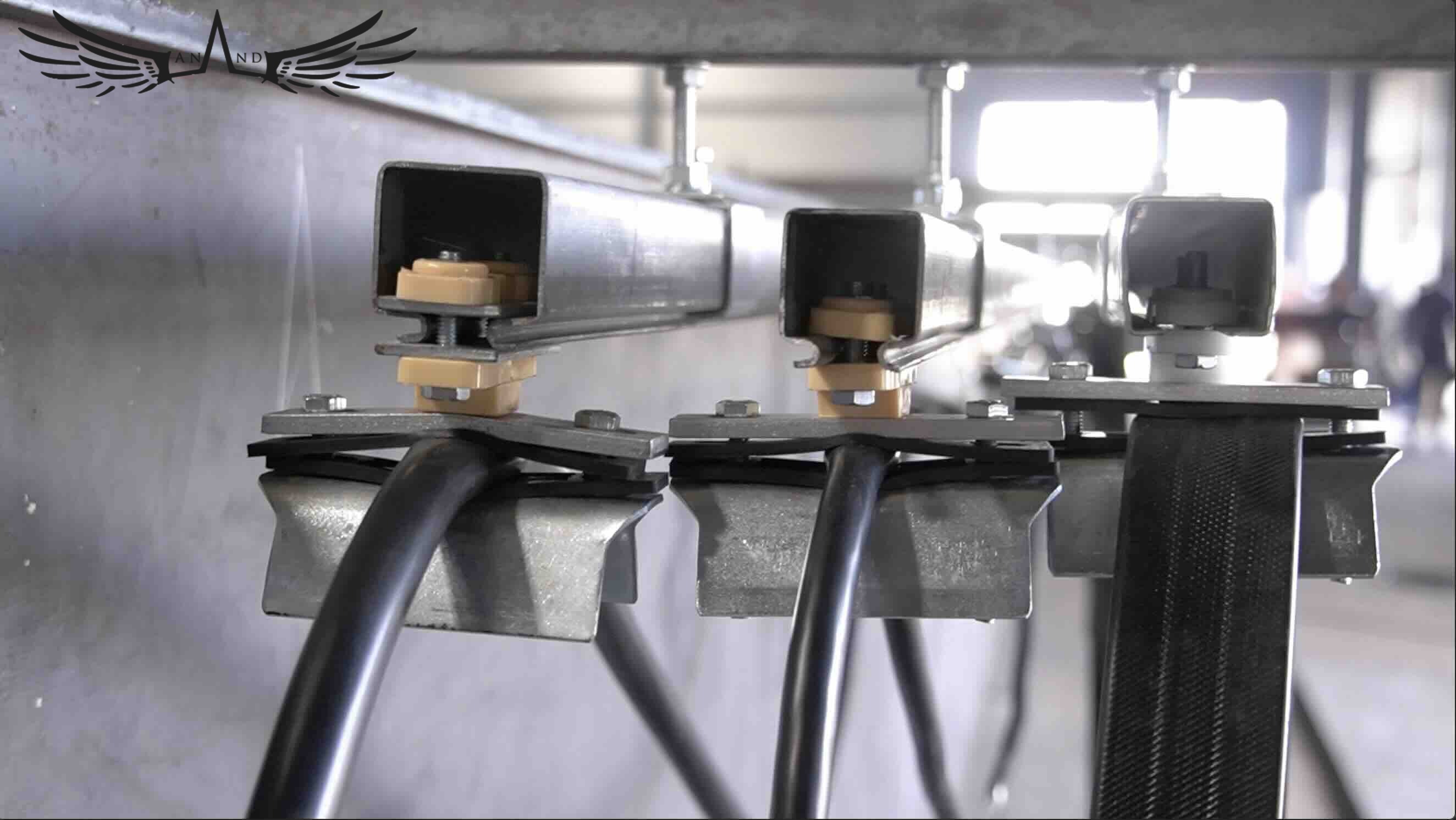
Anand C Rail Manufacturing
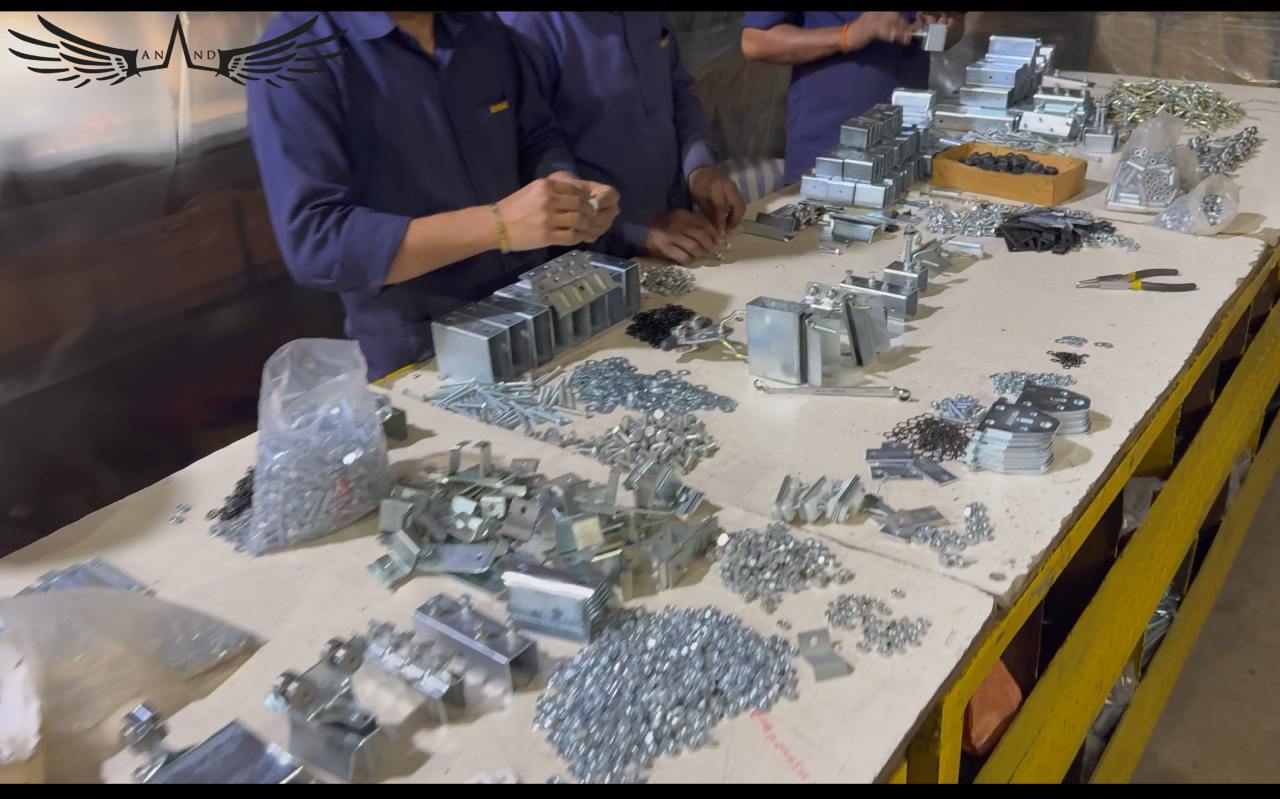
Cable Festooing System
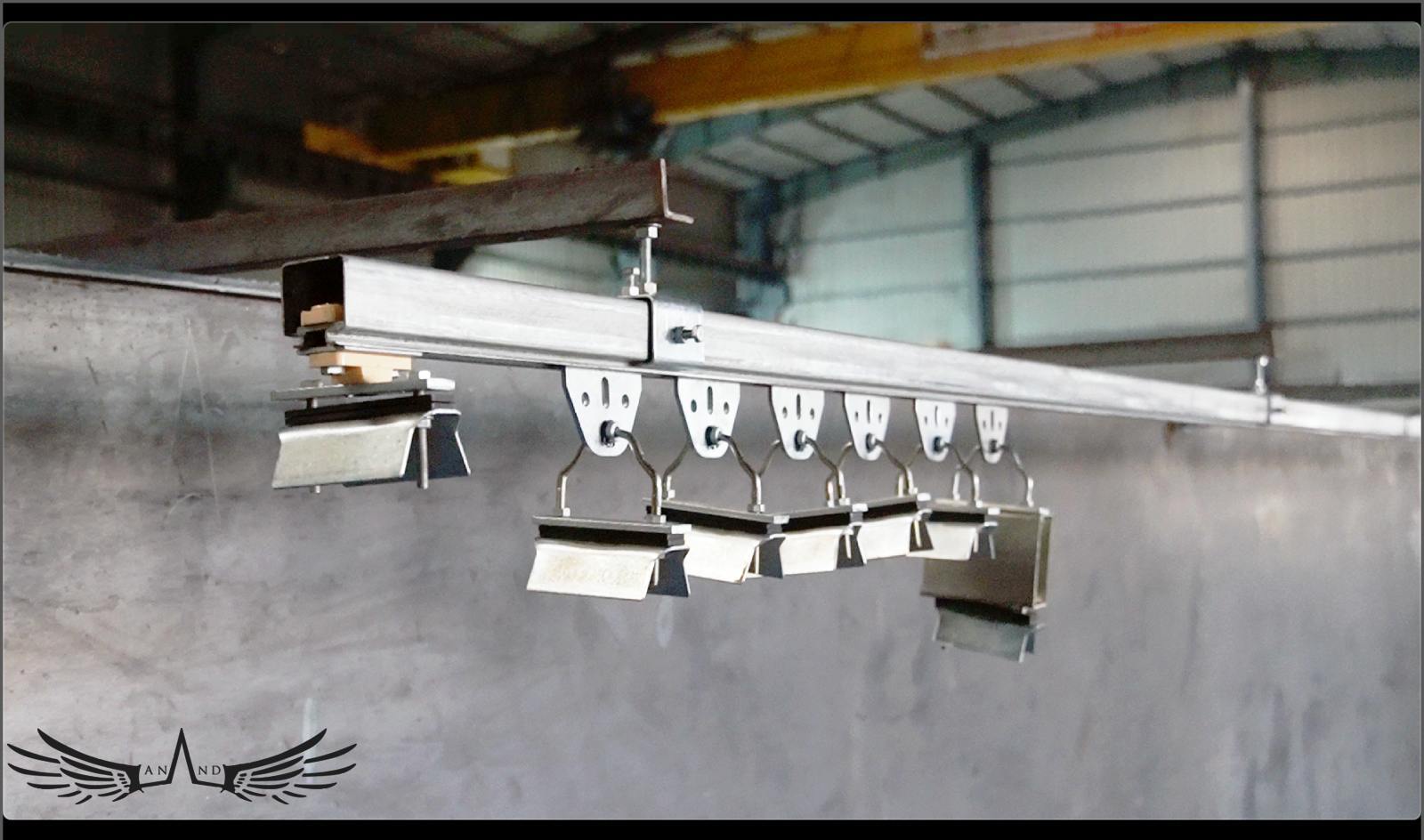
Anand C Rail Hanger Clamp Installtion
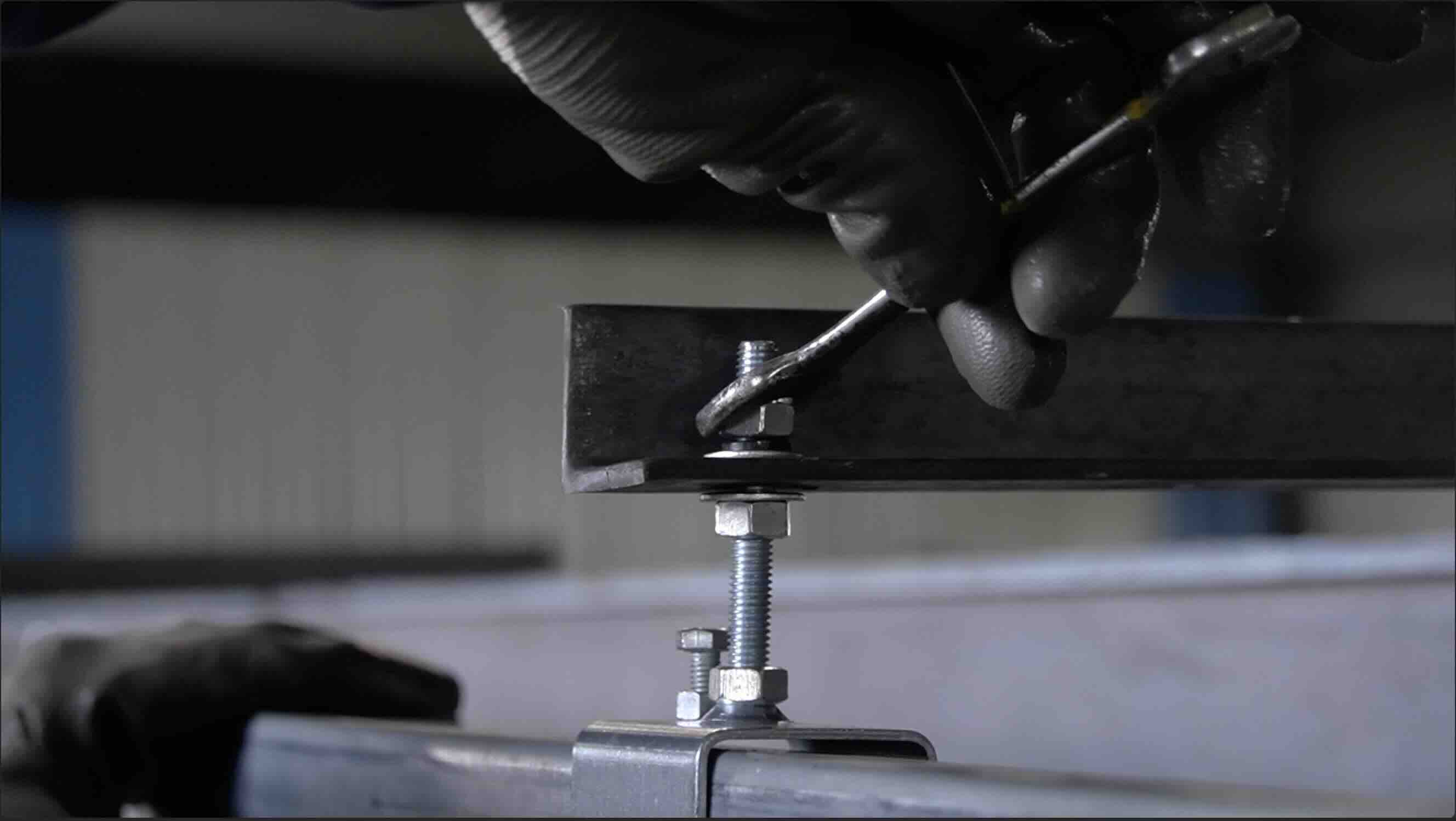
Anand C Track Accesories Manufacture
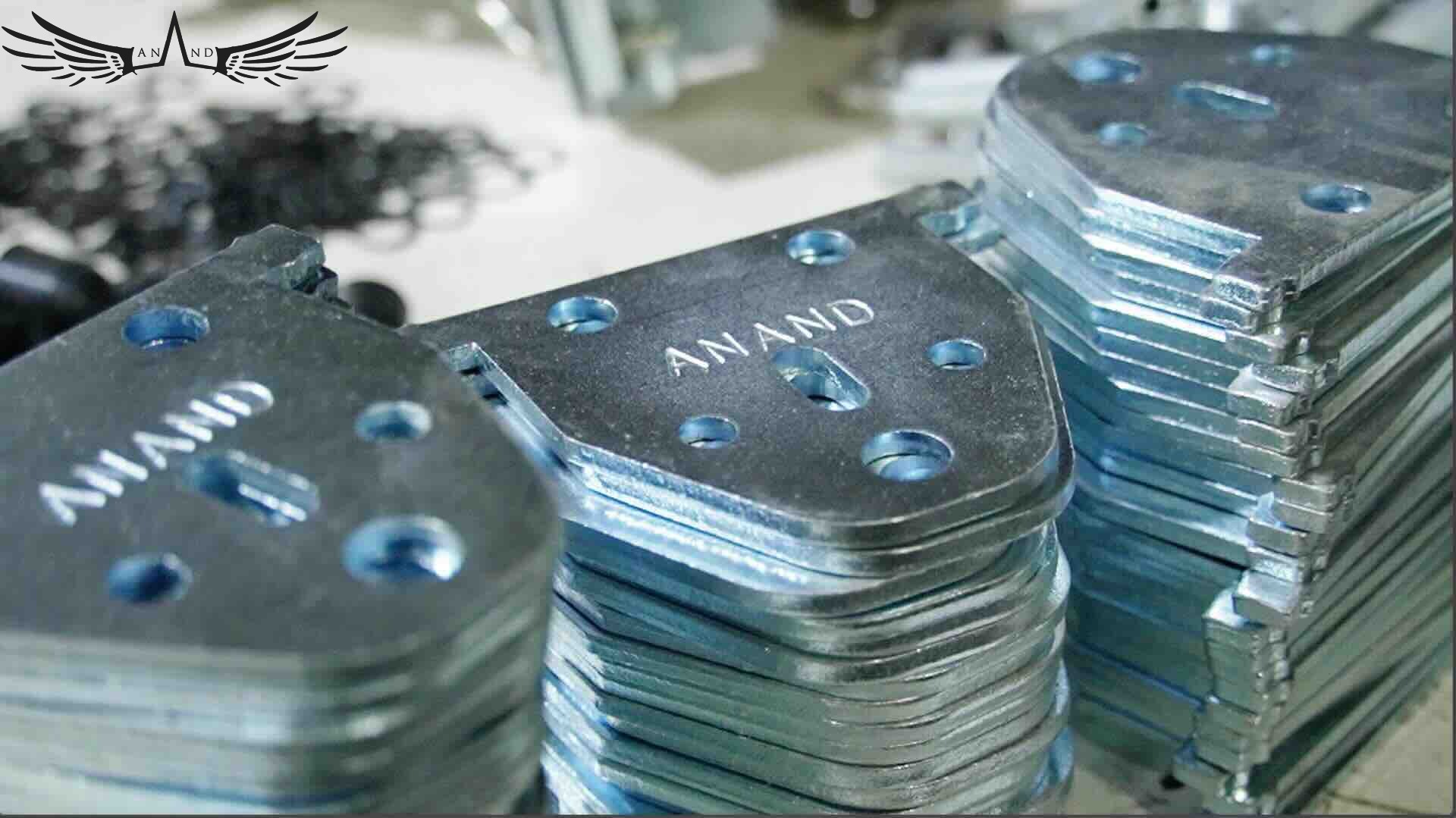
Anand Cable festooning system.
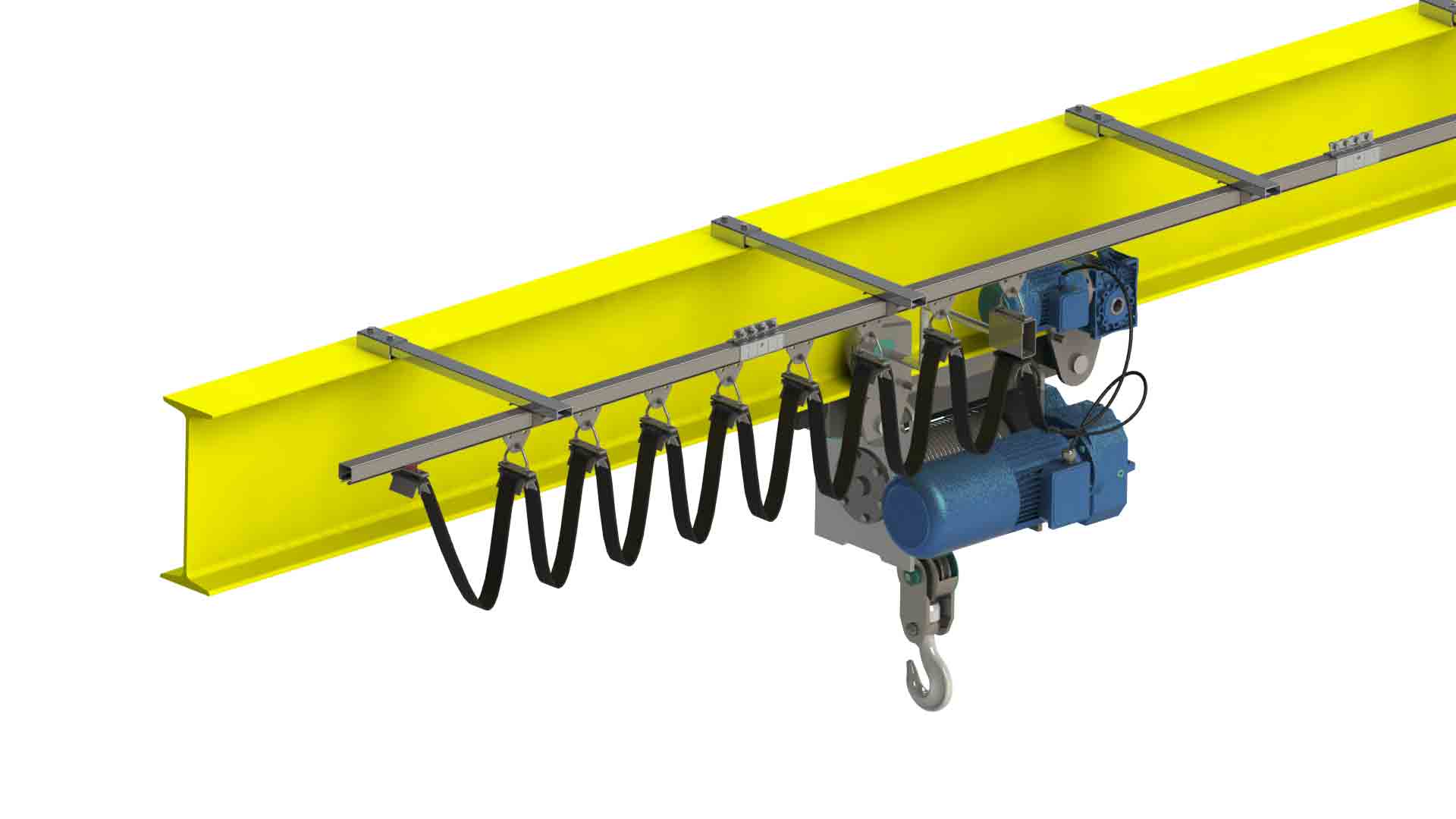
200+ businesses use Anand C Rail & C Track Festooning Systems for overhead Cranes
30 Series Standard Type C Rail
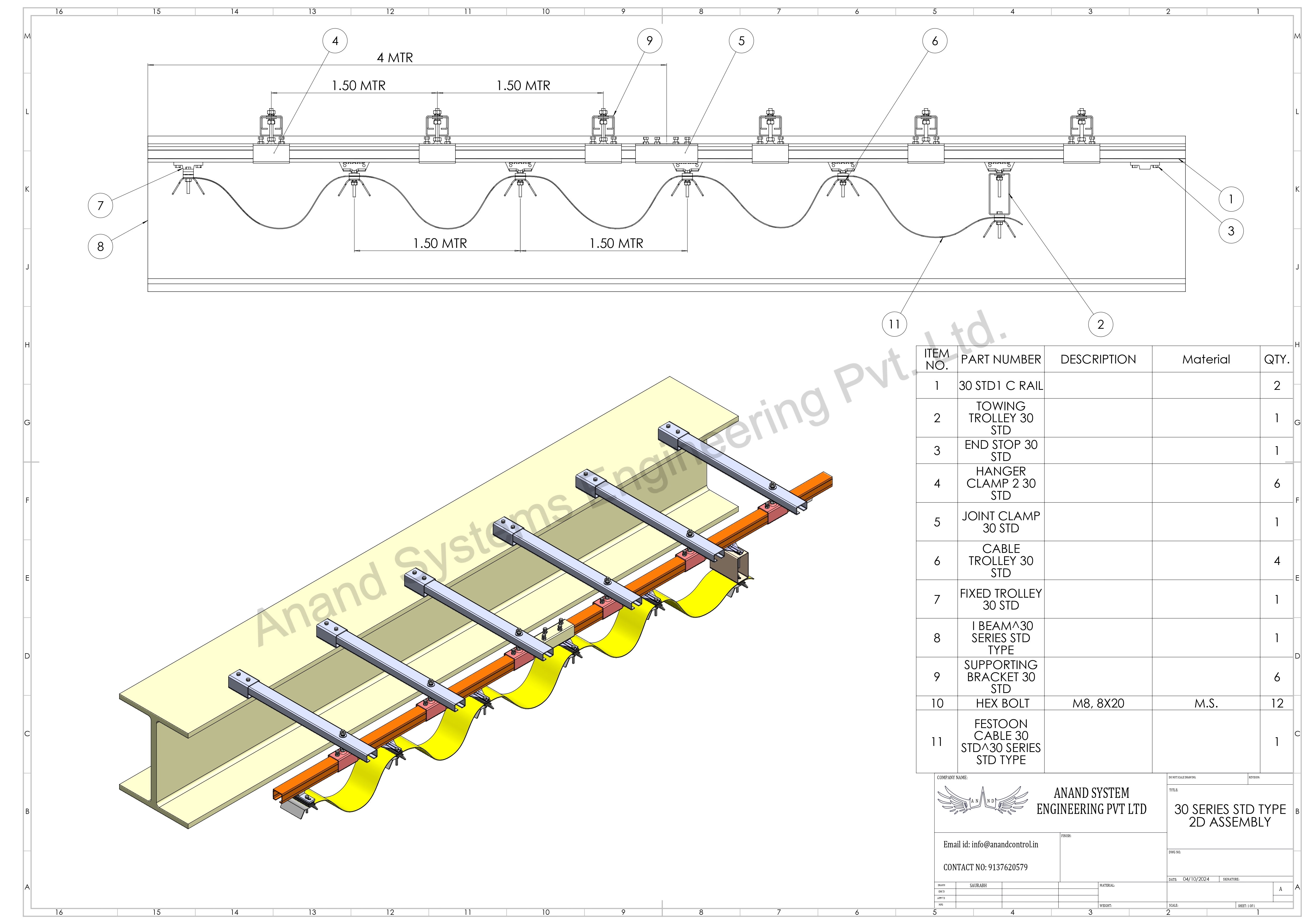
30 Series KRD Type C Rail
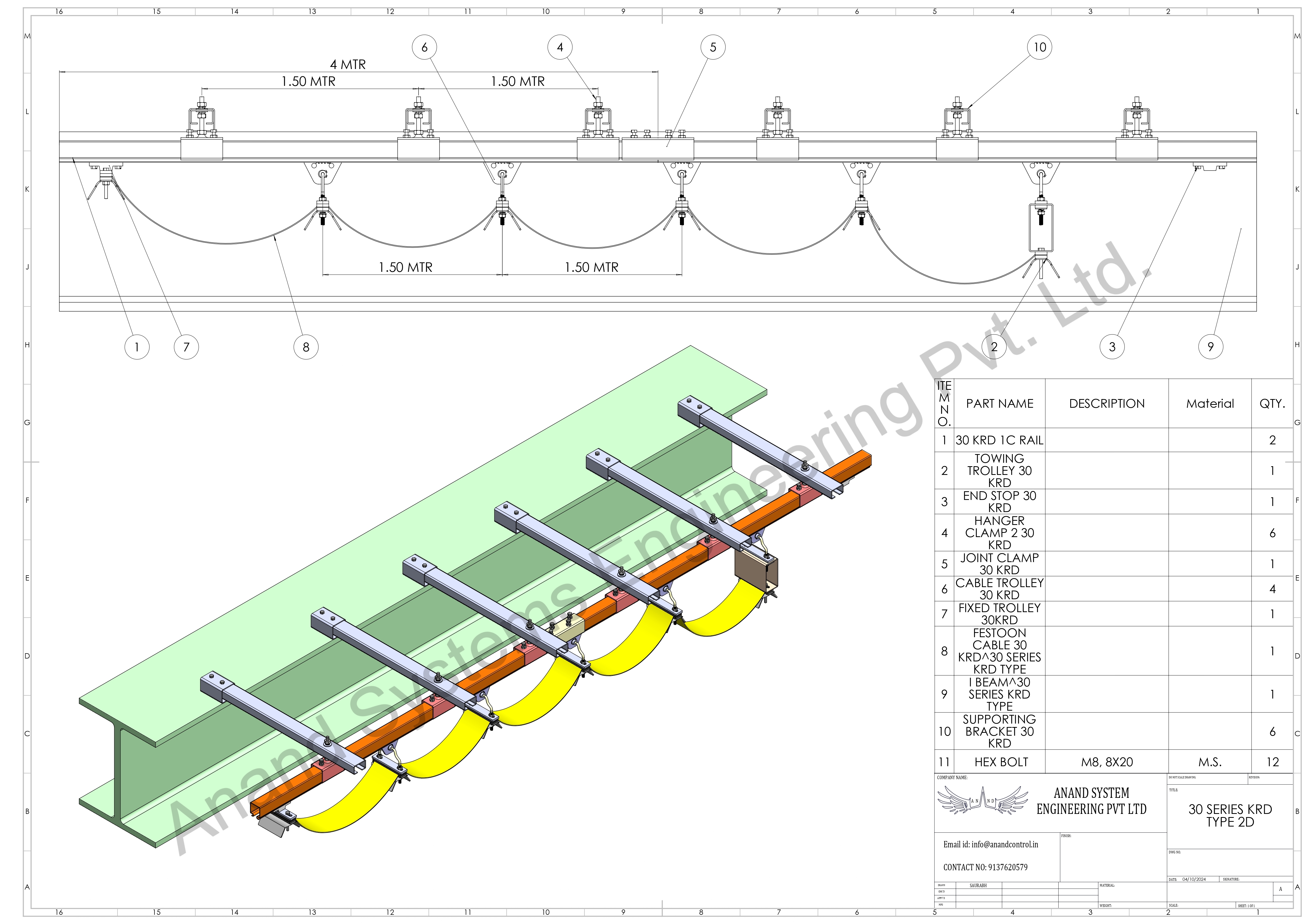
40 Series KRD Type C Rail
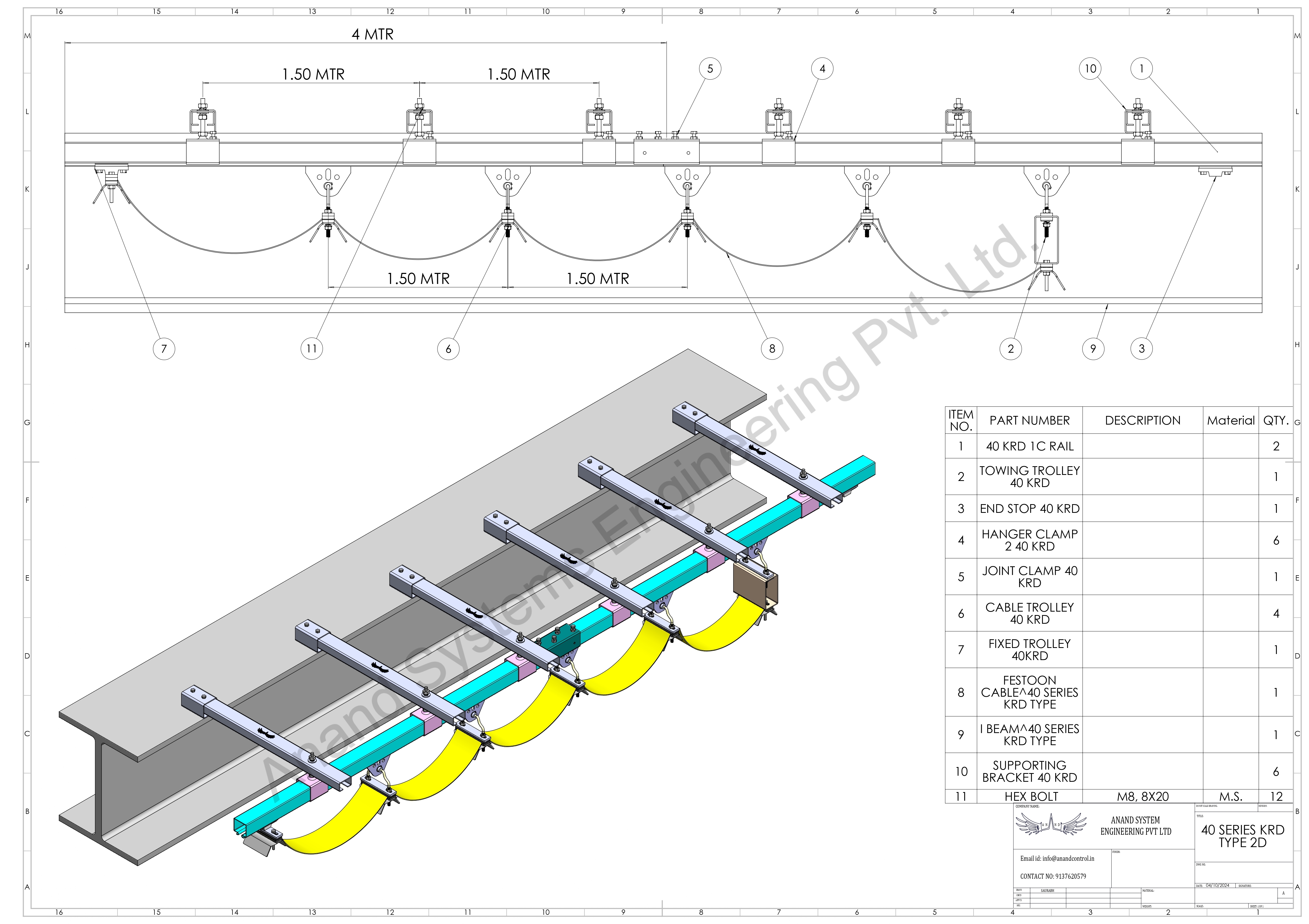
Question: What is a festoon cable system, and how is it used in material handling applications?
A festoon cable system is a crucial component in material handling applications, connecting the power bar electrification system of cranes to their hosts. It is also applicable for electrifying monorails and jib cranes. The system serves the purpose of protecting and guiding various elements such as circular cables, air, water, and gas hoses.
Question: Where are festoon systems commonly used, and what makes them suitable for diverse environments?
Festoon systems find frequent use in overhead EOT cranes, jib cranes, port cranes, trash cranes, and other material handling applications. Notably, they exhibit stability and versatility, making them suitable for both indoor and outdoor applications, including high-temperature and demanding conditions. Additionally, festoon systems are employed to power and control explosion-proof cranes safely.
Question: Can you explain the key components of a festoon cable system and their functions?
A festoon cable system comprises various components, each playing a specific role:
Fixed End Function Box: Regulates the movement of Flat PVC on the fixed arm.
Terminal Strips: Control unit trolley with terminal strips for managing unit trolleys.
Cable Connectors: Terminates Flat PVC cable with corrosion-resistant, flame-retardant connectors.
End Clamp: Non-moving component securing the fixed end of the C-track.
Track Hanger: Suspends heavy-duty C-track from cross-arm support channels.
Cable Trolley: Carries electrical cable within the C-track during machine operation.
Cross-arm Support Channels: Positioned perpendicular to I-beams, supported by girder arms.
Beam Clamp: Secures cross-arm support to I-beam flange for mounting.
C-Track Channel: Steel C-shaped channels guiding the C-track.
Control Unit Trolley: Mobile carrier for the festoon system's mobile end with a junction box or quick disconnect.
Track Joint Assembly: Secures and aligns attachments with the track segment.
Pendant Cable: Used in control applications, delivering signals from push-button controllers to overhead cranes.
Push-Button Pendant Station: Equipped with various functions for crane operation.
Tow Arm: Positioned on the crane to move the tow box in the festoon system.
Tow Trolley: First cable carrier at the power festoon system's mobile end.
Flat PVC Cable: Supports electrical, pneumatic, and hydraulic lines.
End Stop: Keeps end clamps in place and prevents rolling.
Question: What are the advantages of festoon systems, and are there different types for various applications?
Festoon systems offer advantages such as organized cable arrangement without twisting, simplicity in maintenance and operation, adaptability to harsh conditions, and suitability for a range of temperatures. There are different types, including flat festoon with round pendant cable, heavy-duty festoon systems, C-track festoon systems, C-rail cable systems, track-mounted cable festoon systems, square rail festoon systems, and I-beam cable festoon systems, each catering to specific industrial needs
Question: How can one choose the right festoon cable system for their application, and where can they seek expert guidance?
Choosing the right festoon cable system involves considering factors such as the site's environment, cable type, and total weight. If uncertain or facing issues, seeking guidance from experts like Technomax, with years of experience, ensures a reliable solution for festoon system requirements.
Question: In conclusion, why is it important to consider festoon cable systems carefully, and where can industry experts provide valuable insights?
The festoon cable system is a vital component in material handling, demanding careful consideration for optimal performance. Industry experts like Anand Systems Engineering can provide valuable guidance and recommendations to ensure that cranes operate effectively with the right festoon cable system.
Ease Of Cable Management
They are used to organize the cables for ease of management and safety. The whole system is made up of many parts such as an extruded or formed profile with a cross Section in the shape of the letter C, clamps, trolleys & supports.
Without proper management, cables can become an entangled mess. This can lead to loss of production time, safety hazards, accidents ,money and time.Due to this the cables can also disconnect and cause a short circuit in an industrial environment.A detailed planning of cables leads to long life of the equipment, significantly reduce safety hazards & good maintenance and serviceability of the connected equipment.Hence, for a proper management of cable, C Rail Festoons are used as one of the cable management systems.
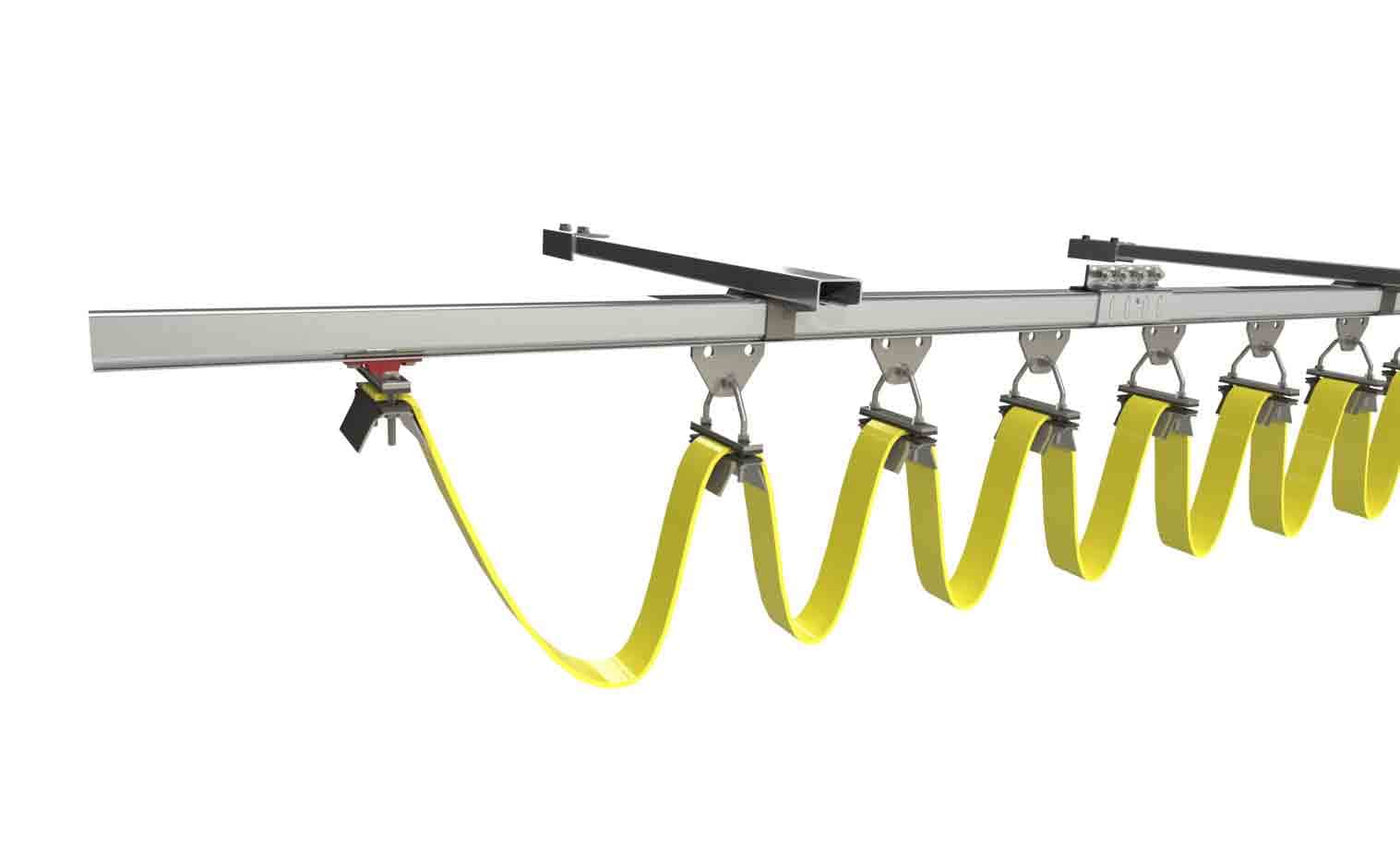
Design of C Track Festooning System.
The C Track is designed in such a way that the small trolleys can move freely on the inside of the C track while carrying the cables.This kind of a cable management system allows the operator to move the cables from one end of the C track to another end exactly how a curtains roller works in our homes.This helps in improving the strength, reliability and performance of the overall product.
Length of the Festooning system
C tracks come in prefabricated lengths of 4 meters each. Depending on the length of the festooning system required, the C tracks can be joined together with the help of joints . To determine the length of the cable , first we need to know the length of the C track. Then we calculate the total required Sag of the cable when two cable trolleys touch each other.
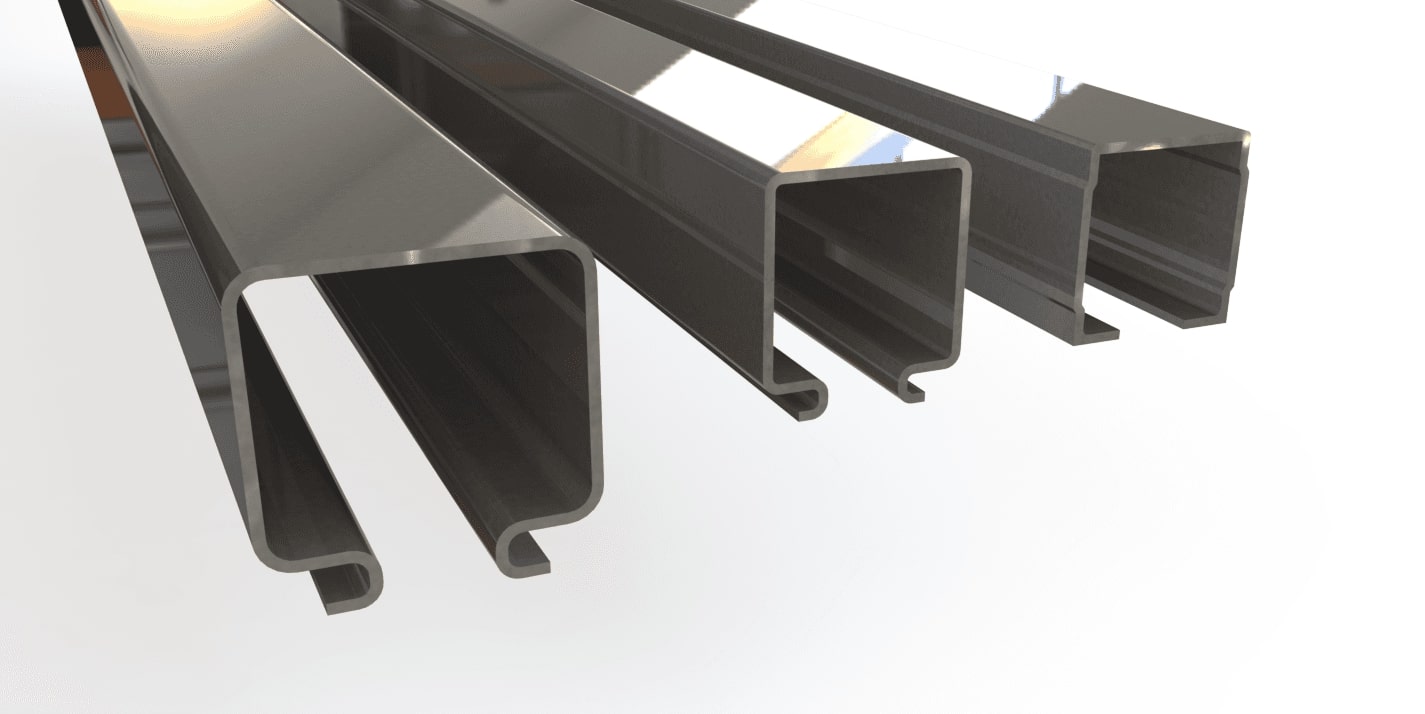
Placement of C Track Festooning System
Many different kinds of cables can be managed such as flat, round,etc. In overhead Cranes and hoists, usually one end of the cable is connected to the control panel, then the cable is festooned with the help of the roller trolleys and finally the other end of the cable goes to the hoist or any other mobile heavy-duty machinery which needs power and control. C rails are usually placed on the cross travel motion of a crane machineries and hoists.
C rail systems can also be used to connect the hand operated pendant cable to the control panel. This helps the operator of the overhead crane machinery or the hoist to move instead of operating the machine from a fixed location.
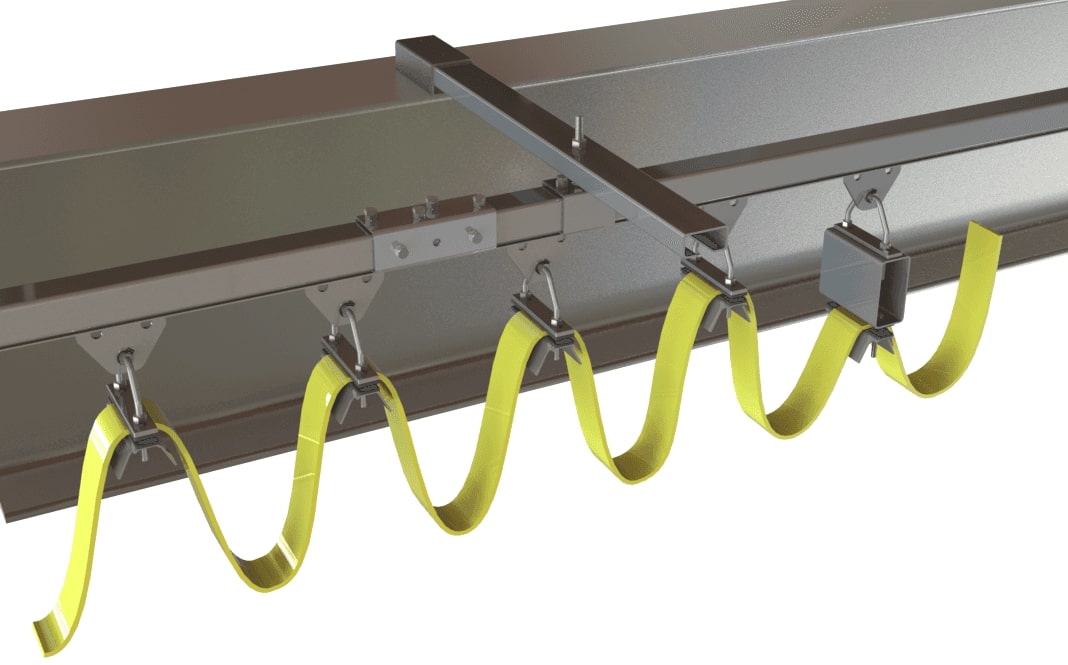
C Track Festooning System Detailed Description
You can find here the detailed description of each section of the C Track.
Each Section of the Anand C Track is well designed for harsh Industrial application.
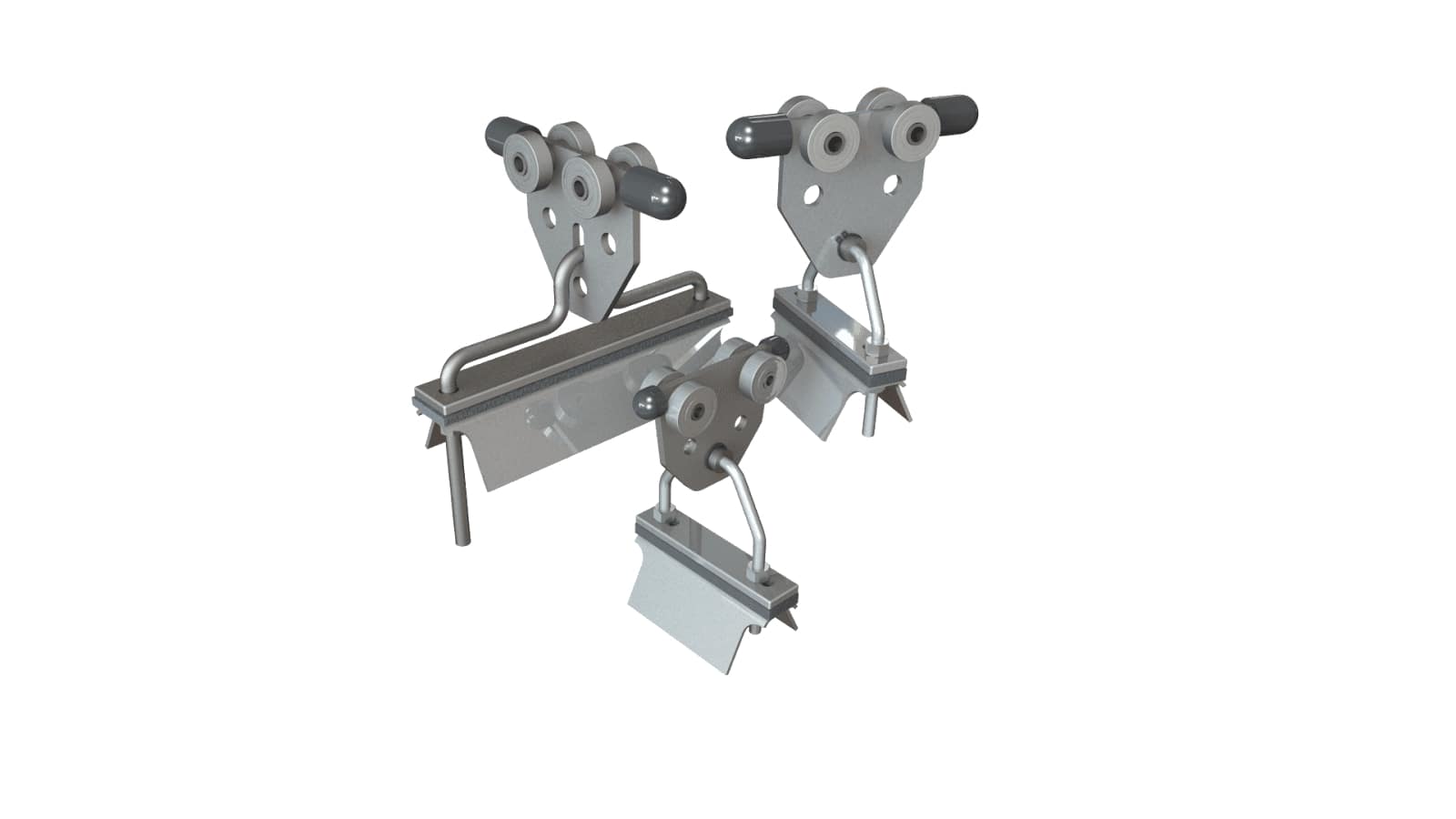
Cable Trolley
A Cable Trolley is required for each flat cable loop between the End Clamp and Tow Trolley. Stainless steel trolleys have stainless steel body/saddle and stainless steel sealed rollers and hardware.
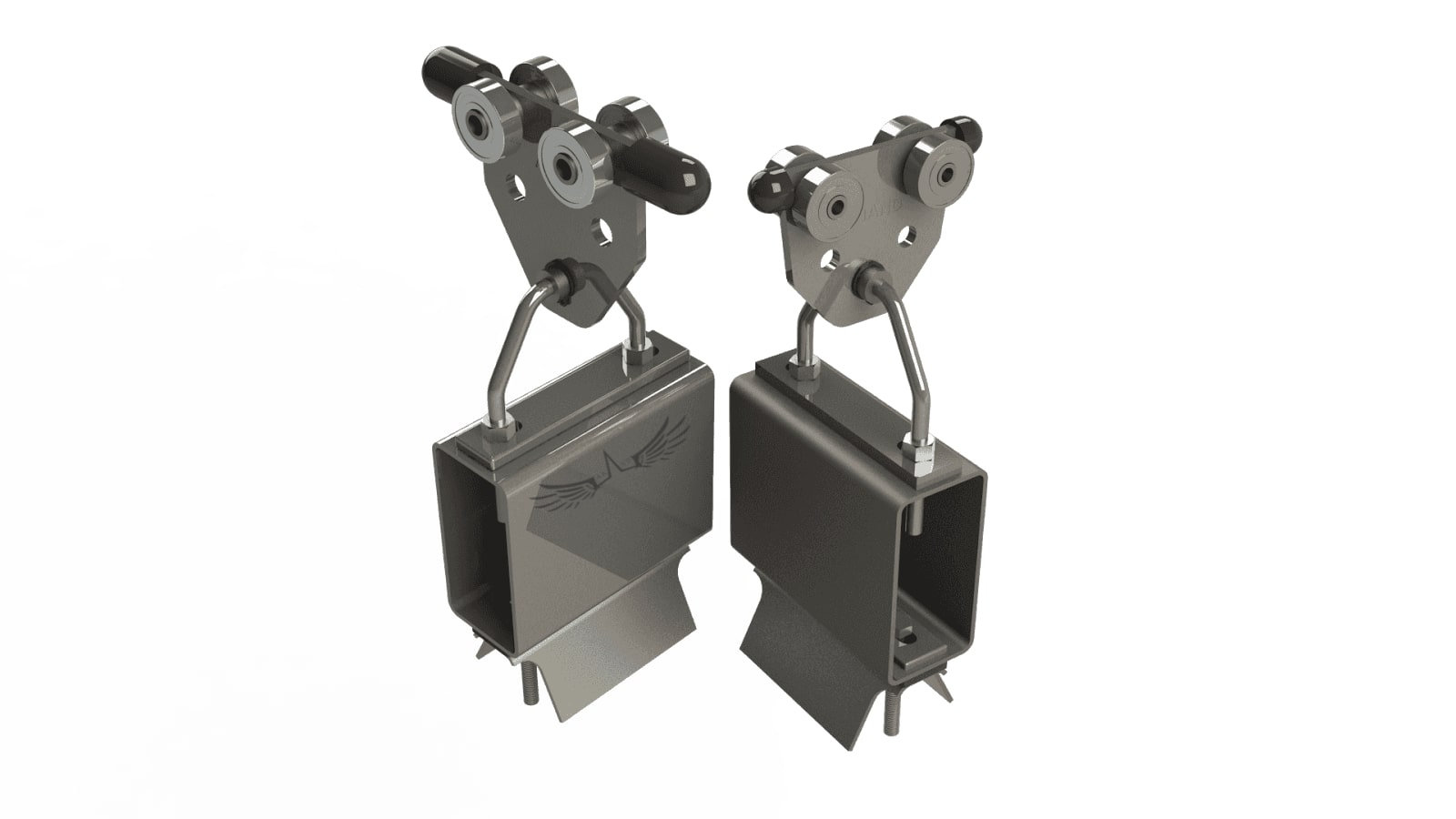
Towing Trolley
One Tow Trolley is required for each track run. The unit has an opening in the body to accommodate the Tow Bar. Stainless steel trolleys have stainless steel body / saddle and stainless steel sealed rollers and hardware.
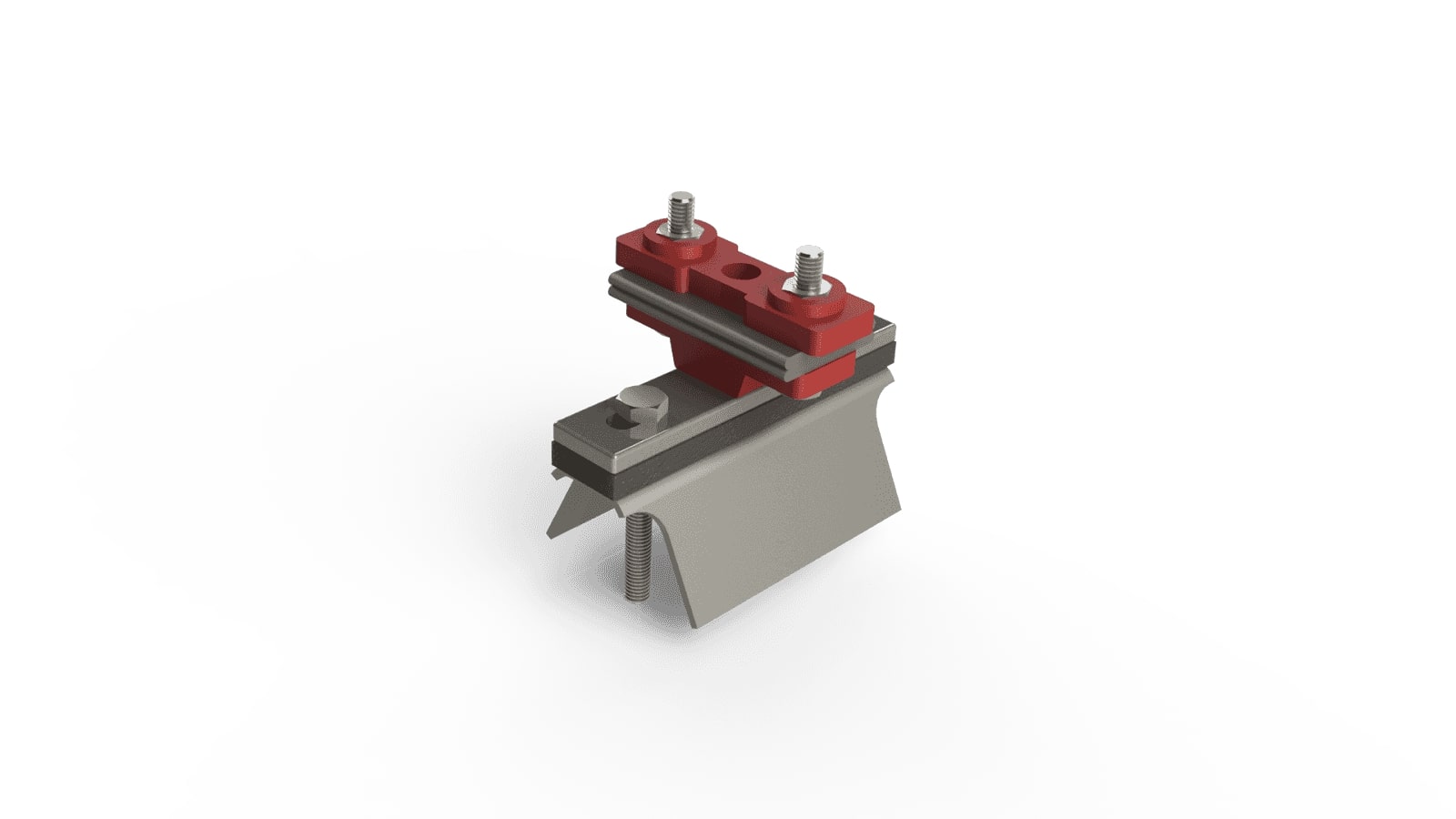
Fixed Trolley
A Fixed Trolley is required at one between the End Clamp and cable trolley. This prevents the cable trolleys to move outside the C-Track. Stainless steel trolleys have stainless steel body/saddle and stainless steel sealed rollers and hardware.
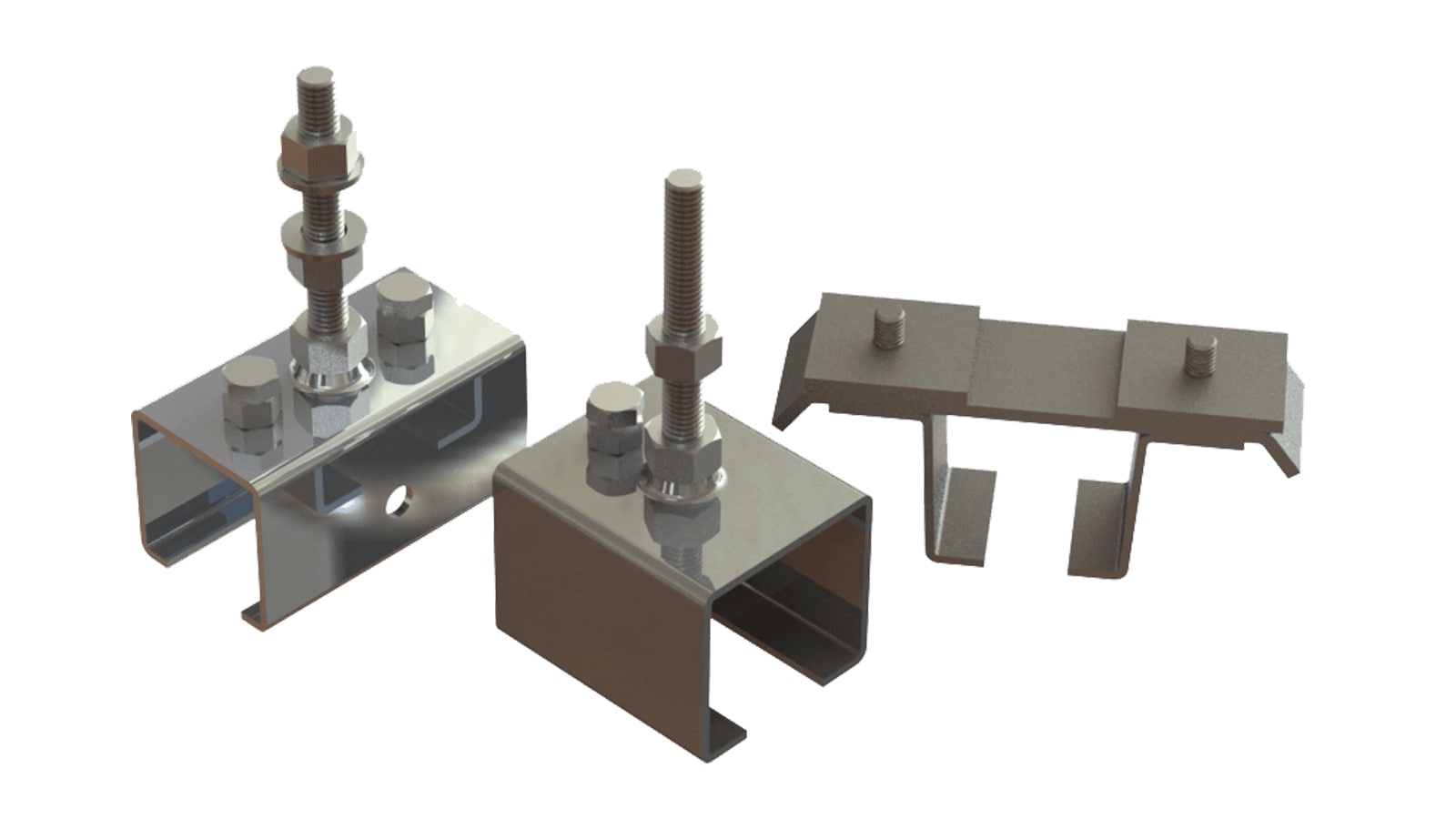
Hanger Clamp
This bracket mounts to Cross Arm Support Channels at two points to hang the C-Track. The clamping action of the support bracket eliminates the need for a separate anchor.
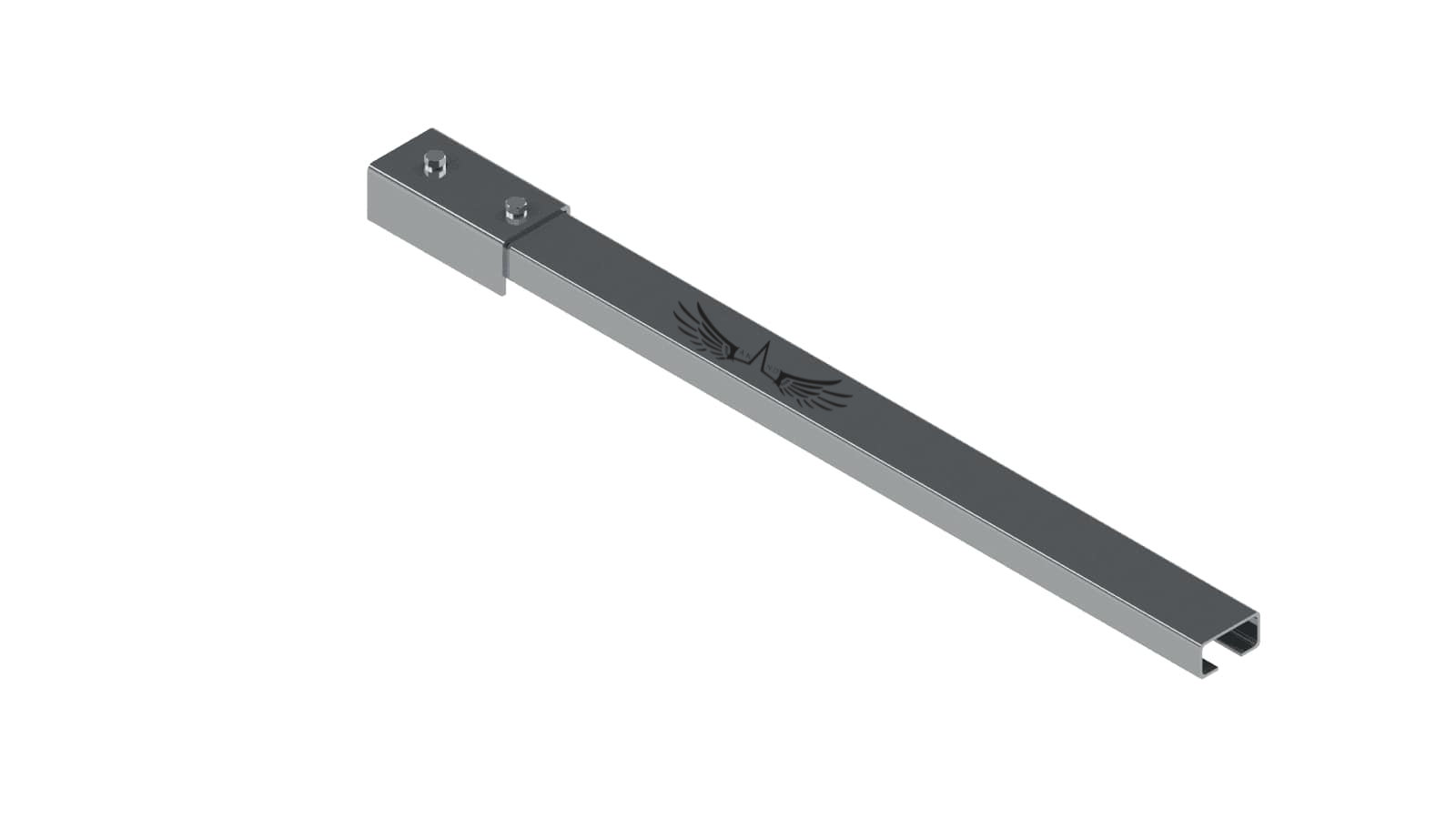
Supporting Bracket
Cross Arm Support Channels are mounted perpendicular to the I-beam or girder every 1.5 meter to support the main C-track channel. Made from heavy channel for added rigidity.
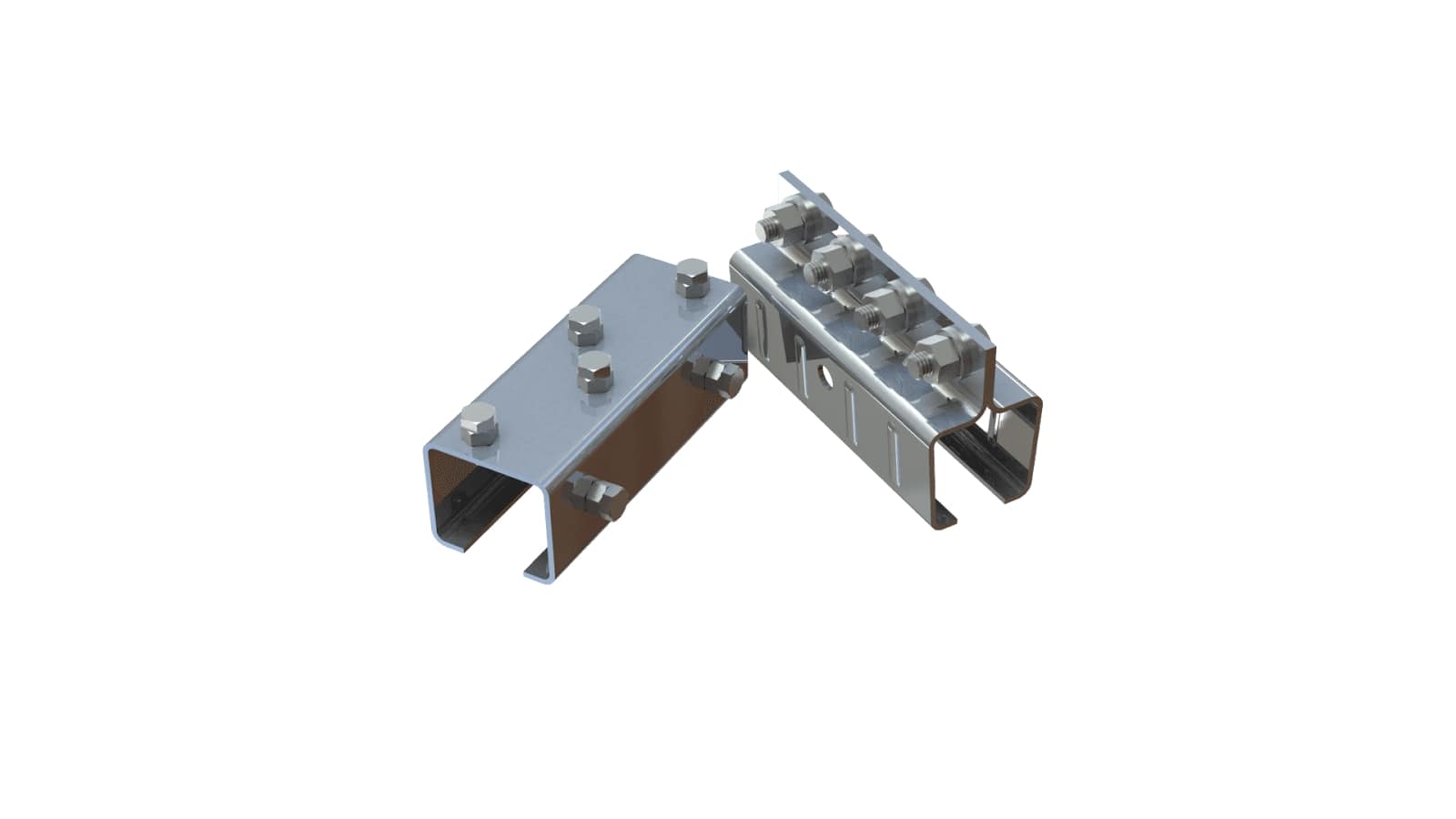
Joint Clamps
The bolted Track Joint securely connects track sections together end-to-end. One required at each track joint. Includes four bolts, lock washers, and nuts.
Advantages of C rails vs other cable management systems
Since cables in C Rail systems can enter and exit from any trolley, it is an adaptable and future proof system.
Easy to inspect and install visually.
Since each part of the system is made up of metal, the whole festoon can withstand very high temperatures.
Product List of Standard 30 C Rail and KRD
